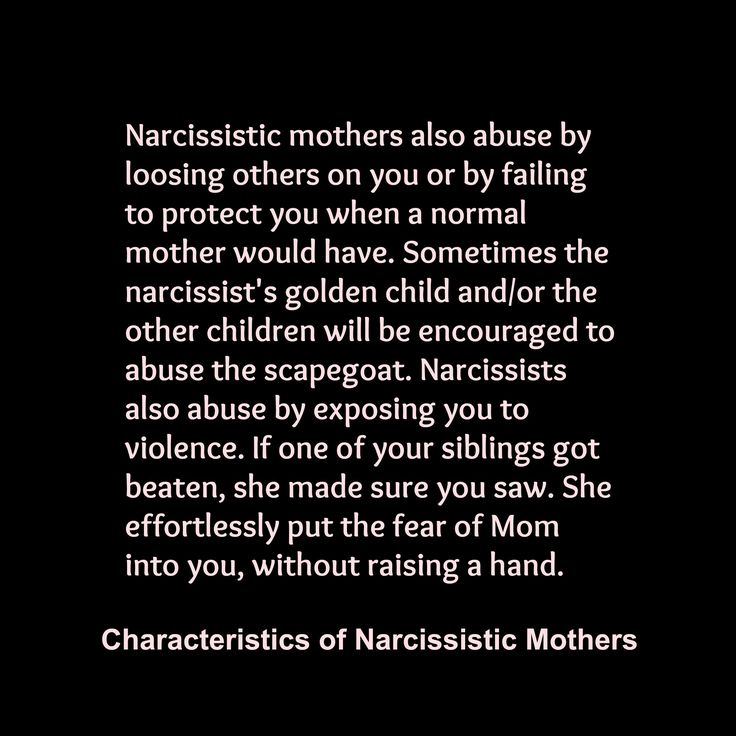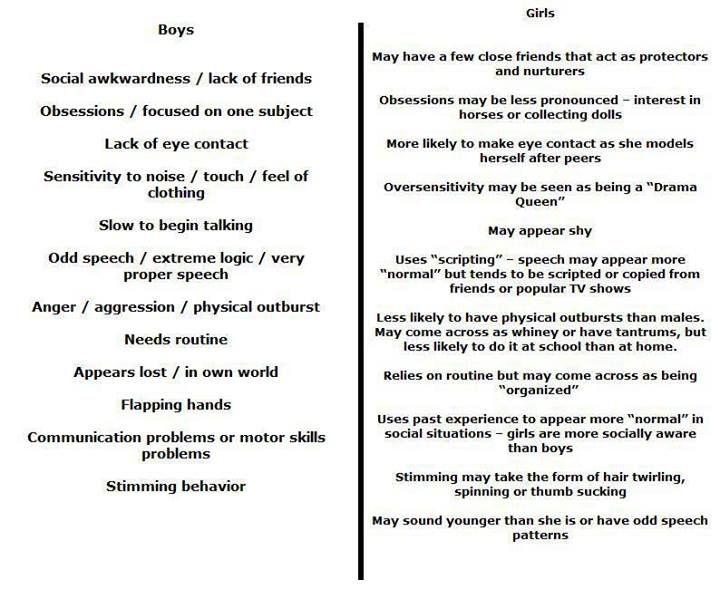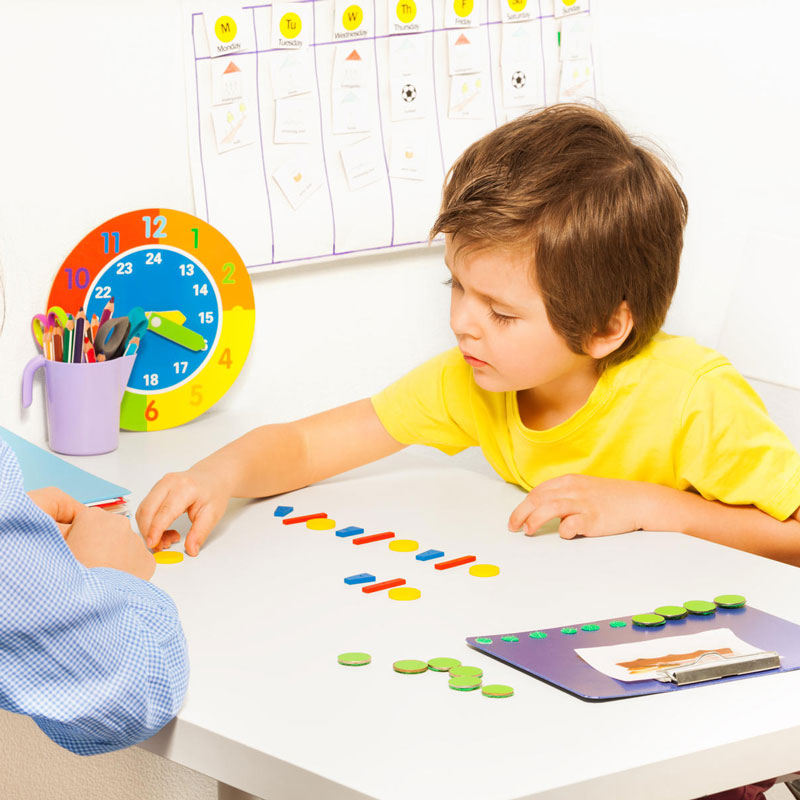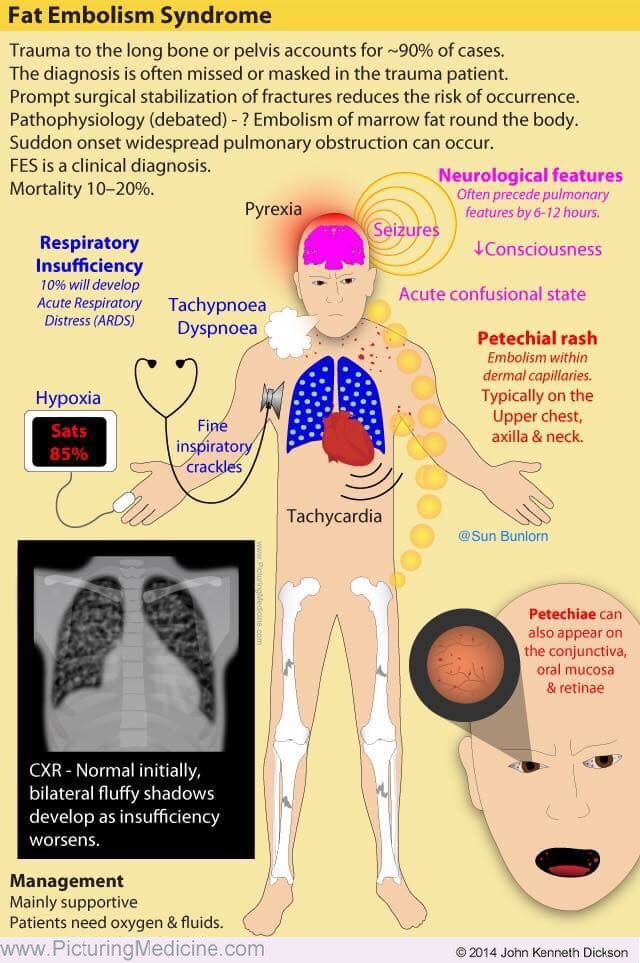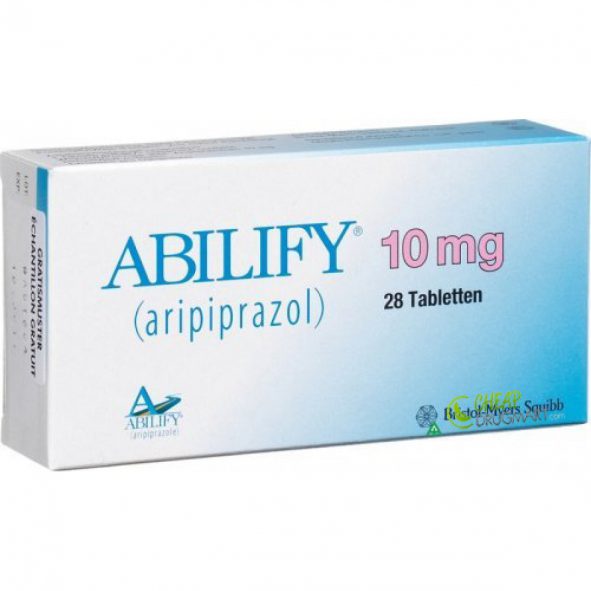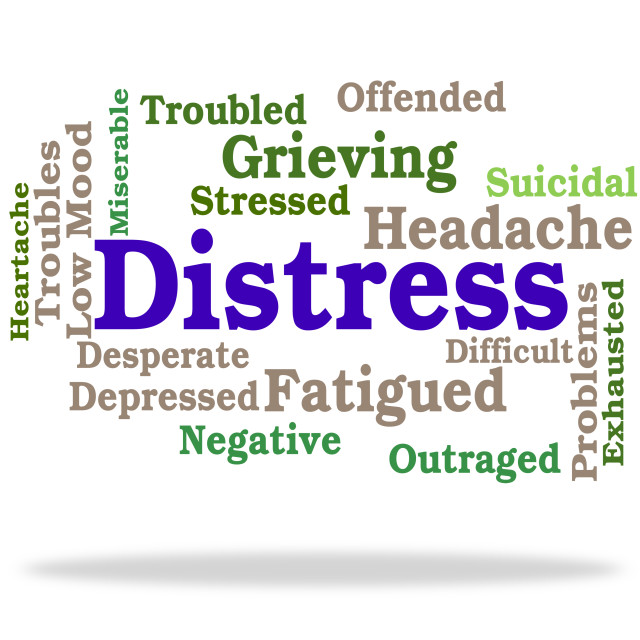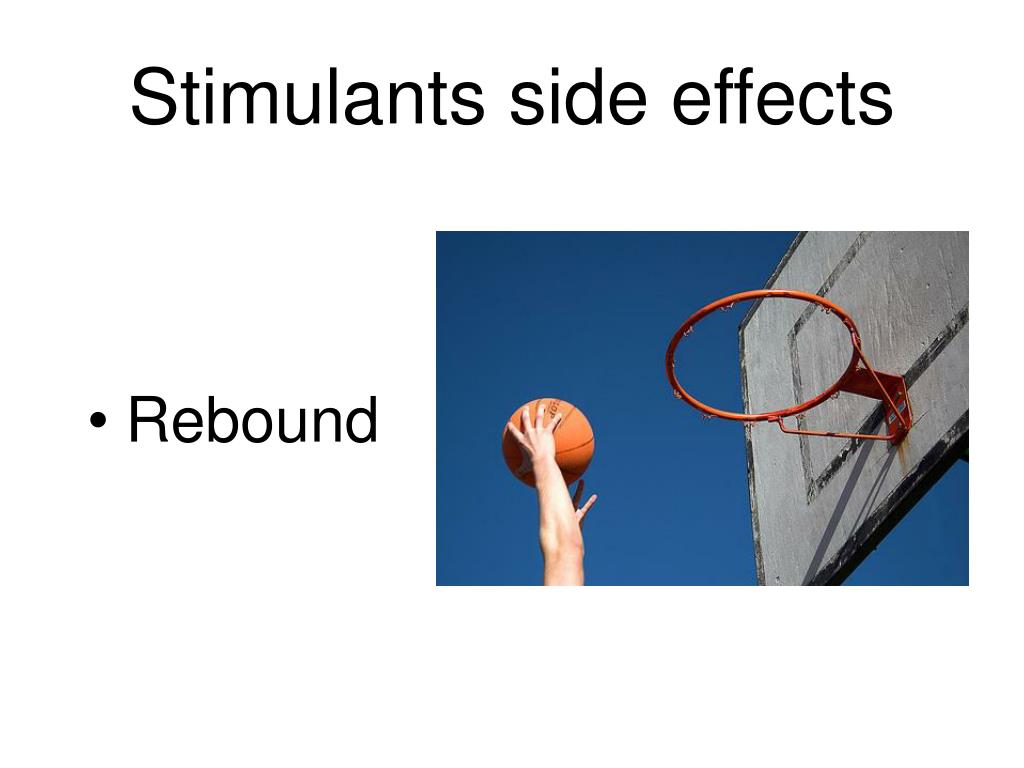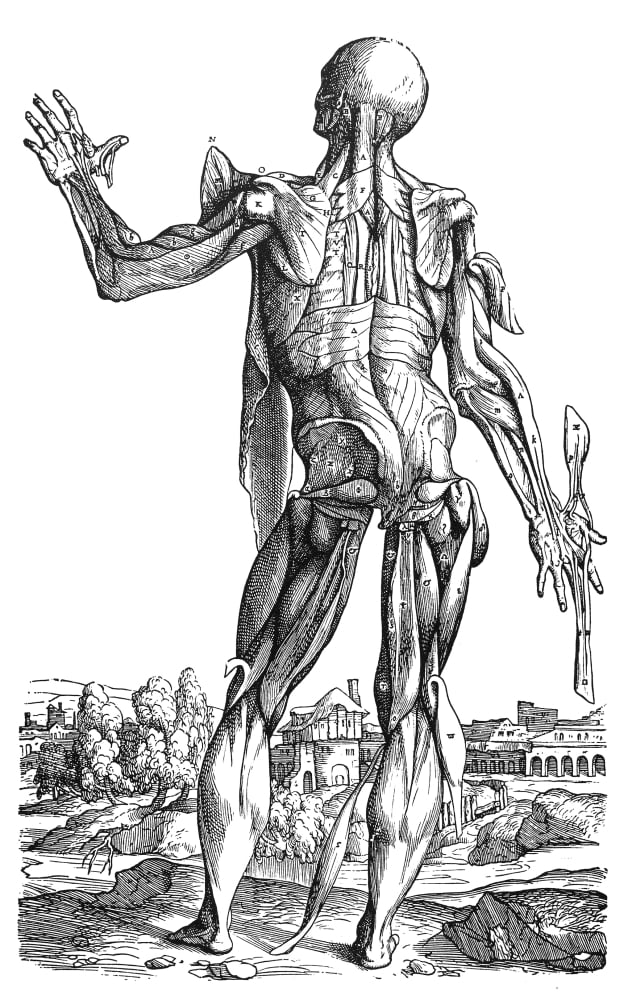Scapegoat narcissistic mother
Roles in the Narcissistic Family: The Scapegoat Child
When you’re a scapegoat, like I was as a child, you’re burdened by recovering from manipulation, put-downs, and unequal treatment — but hope and healing is possible.
We strive to share insights based on diverse experiences without stigma or shame. This is a powerful voice.
If you believe you’re a scapegoat, or were one as a child like I was, you might have been deprived of the experience of growing up in a safe, stable home where the unconditional love of parents and caregivers abounds.
In family units where a parent or caregiver has narcissistic personality disorder (NPD), there’s typically a family “scapegoat” — a person the family blames for their problems as a means of deflecting attention from real conflict.
A 2020 research paper explains that the goal of the parent with NPD is not to deal with or resolve the issues, but to cover them up.
I’m a survivor of maternal narcissistic abuse and by understanding the traits of both narcissism and scapegoat childhood trauma, you can survive, overcome, and heal, too.
The term scapegoat was borrowed from the Hebrew tradition of the annual Day of Atonement, where a goat was “cursed” and imbued with the sins of the nation, to wander and die in the wilderness as a sacrifice.
A scapegoat is a person or group you place blame on. When scapegoating children, the child is blamed or shamed for all the issues that arise within dysfunctional households.
Here’s how scapegoating works: The parent with NPD blames their child (or children) for family issues. The family then learns from these actions that all blame will be (mis)placed on the scapegoat, to maintain equilibrium in home life.
Several children can be scapegoated in a dysfunctional home.
A research paper in 2020 wrote that individuals living with narcissism create a “golden child” and one or more scapegoats within a household. This labeling gives people with NPD the freedom to:
- manipulate or instigate
- play people against each other, also referred to as triangulation
- project their anger
- continue living without regard to the impact of their words
- displace all the blame onto someone else rather than be personally accountable for their own actions
In healthy family dynamics, the parent’s role is to support the child’s development and well-being. In dysfunctional families, child roles are artificial (for instance, the golden child or scapegoat child) and are meant to serve the needs of the parent.
In dysfunctional families, child roles are artificial (for instance, the golden child or scapegoat child) and are meant to serve the needs of the parent.
My parent has narcissistic personality disorder and would spew things at us kids like: “If only I didn’t have you all.”
Verbal abuse was typical, as she continued to berate and blame us for her lack of success in life and why she was stuck dealing with all the consequences of her own actions. We all shared the title of scapegoat in my home.
If you’ve ever felt like the family punching bag, the “problem child,” or the proverbial “whipping boy” when recalling your relationship to your dominant caregiver, you may have been a scapegoat child yourself.
Children tend to trust what their parents are telling them. These internalized messages become ingrained and carried into adulthood and can affect things such as confidence, self-esteem, and relationships.
Without therapy to uncover and recover parts of yourself so you can move forward wholly, there are several ripple effects that might continue into adulthood and affect other relationships, such as:
- Toxic shame.
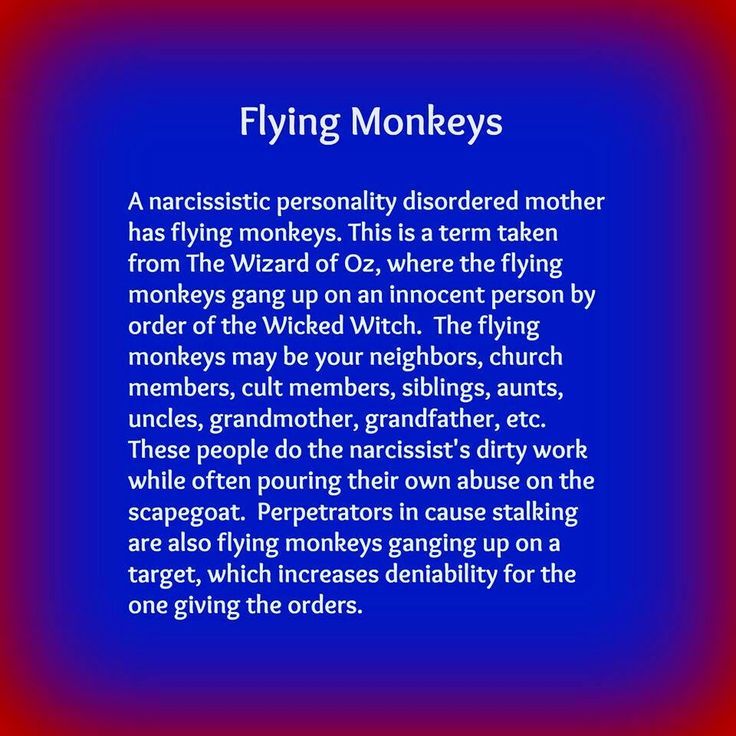 Toxic shame is internalized shame that lasts long and is usually accompanied by childhood memories. You might continue to blame yourself for parental neglect into adulthood, or take on the blame for things that aren’t always your fault in order to keep the peace.
Toxic shame is internalized shame that lasts long and is usually accompanied by childhood memories. You might continue to blame yourself for parental neglect into adulthood, or take on the blame for things that aren’t always your fault in order to keep the peace. - Trust issues. Because of verbal abuse, scapegoated children rarely feel emotional safety and are often unable to trust people or their own instincts — not being able to distinguish what’s true and not.
- Relationship issues. Since the scapegoat child is only tolerated when they bear the faults of the parent with NPD, they can grow up with a distorted view of relationships and love as only conditional or transactional.
- Gravitating toward partners with narcissistic behaviors. Childhood scapegoats may end up in relationships with someone NPD because it feels familiar, verbal abuse is normal to them, and they’re used to being treated this way.
- Low self-esteem.
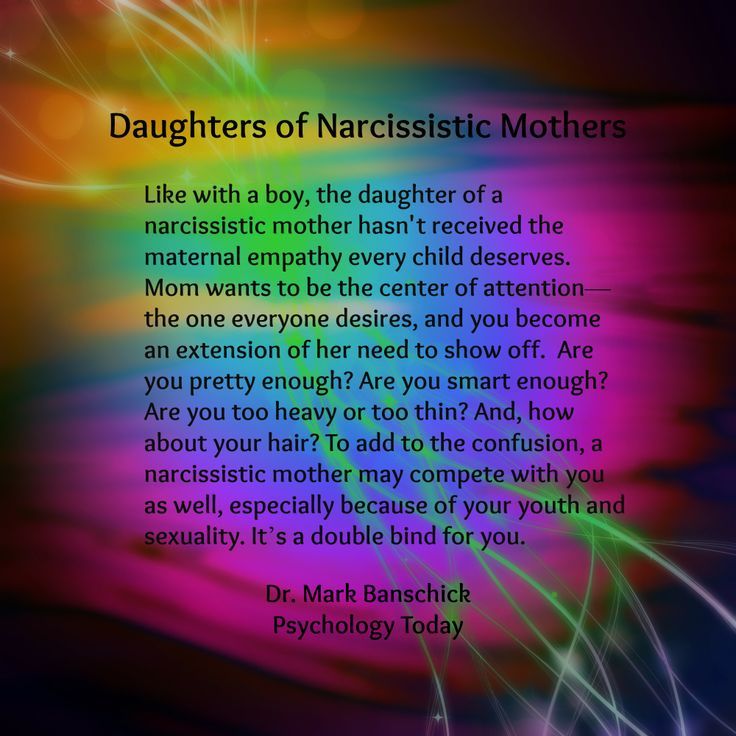 The combination of being shamed, verbally abused, and humiliated can create challenges with self-esteem.
The combination of being shamed, verbally abused, and humiliated can create challenges with self-esteem.
It can be painful to eventually realize that you didn’t receive the essential needs all children deserve for emotional support.
To begin the restorative journey, children who have been subjected to the scapegoat role must learn to stand up to shame and focus on healing their inner world first.
Healing stems from a foundation of having a strong sense of identity and self, and building a supportive relationship with oneself.
Understanding that this role was given to you without your knowledge or choice can empower you as an adult to choose differently.
Key steps you can take to begin the healing process include:
- grieving, and understanding disenfranchised grief
- taking small, everyday steps toward self-discovery and awareness
- building emotional intelligence
- creating emotional boundaries
You can begin implementing these strategies within your daily life.
It’s highly recommended that you consider working with a trauma-informed mental health professional who can assist you in dismantling the narrative that was written throughout your life.
This can be done in a variety of ways, such as virtually, in person, or with online platforms that offer this service. You can find your voice and realize how powerful you truly are.
DRK Beauty Healing is a mental health and wellness company for Black, Latinx, Indigenous, South Asian, East Asian, and all women and nonbinary People of Color to discover, experience, and create their unique well-being journey. They offer free therapy through their nonprofit initiative, one of America’s leading free mental health resources. They also provide access to a broad range of affordable resources (e.g., support group sessions) from culturally responsive therapists, faith-based teachers, and practitioners of various spiritual, healing, and occupational modalities. DRK Beauty Healing believes its holistic approach to healing will ultimately empower People of Color across the globe to forge their unique path to wellness.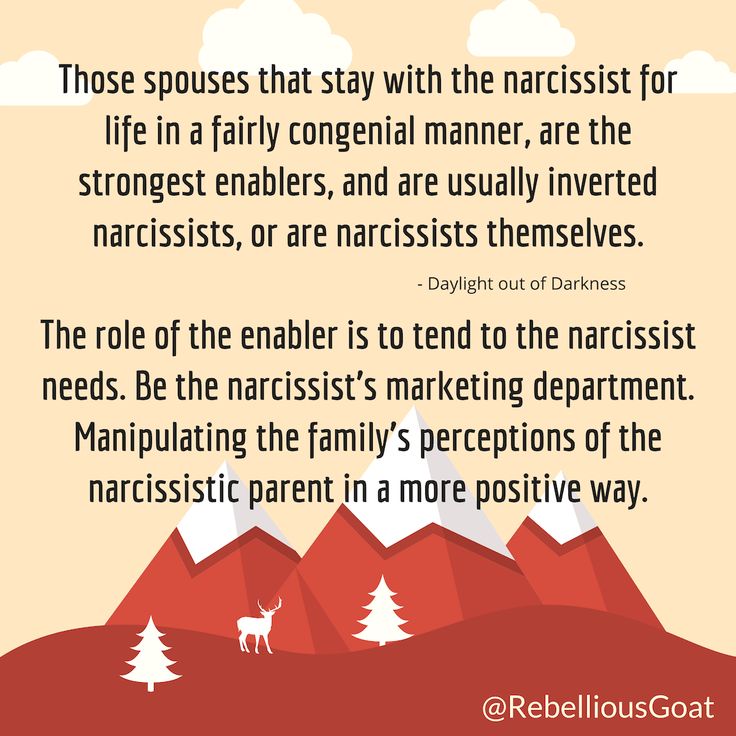
The narcissistic family's scapegoat: Survival and Recovery
Today’s blog post describes why a malignantly narcissistic parent has to scapegoat a child, why certain children get picked as the scapegoat, the impact of getting scapegoated and how to use therapy to recover from this especially pernicious form of abuse. This article extends recent posts on the roles played in families dominated by a narcissistic caregiver.
Sometimes a client comes into therapy telling horrific stories of the chronic and systematic abuse. They recount how their caregivers criticized, humiliated, hurt, degraded and derided them at every opportunity. What’s made this suffering most destructive is the abuser’s conviction that it was what the child deserved. There is no sense of recrimination, accountability, nor guilt for what they put this child through. Rather there is an inscrutable self-righteousness in their cruel attitudes and behavior towards the victim. Without fail, there is also a concerted effort to keep this abuse private from the world at large. The adult child recalls seeing the abusive caregiver charm people outside the home and keep their demonic cruelty behind closed doors. All the better to discredit the victim’s credibility if they ever come forward to report the abuse. Welcome to the world of the narcissistic family’s scapegoat.
Without fail, there is also a concerted effort to keep this abuse private from the world at large. The adult child recalls seeing the abusive caregiver charm people outside the home and keep their demonic cruelty behind closed doors. All the better to discredit the victim’s credibility if they ever come forward to report the abuse. Welcome to the world of the narcissistic family’s scapegoat.
Why does a narcissistic family scapegoat a child?
When a family is dominated by a malignantly narcissistic parent a tremendous strain is put upon the family system. A malignant narcissist needs a victim. They are only satiated when they feel superior to and in control over someone else. That makes anyone close to such a person a potential target. In a family system, the collective strain of the malignant narcissist’s need for a victim gets relieved when a single person is selected. The other members can breathe a sigh of relief – psychologically speaking – and join the malignant narcissist in blaming the selected child for all the family’s unhappiness.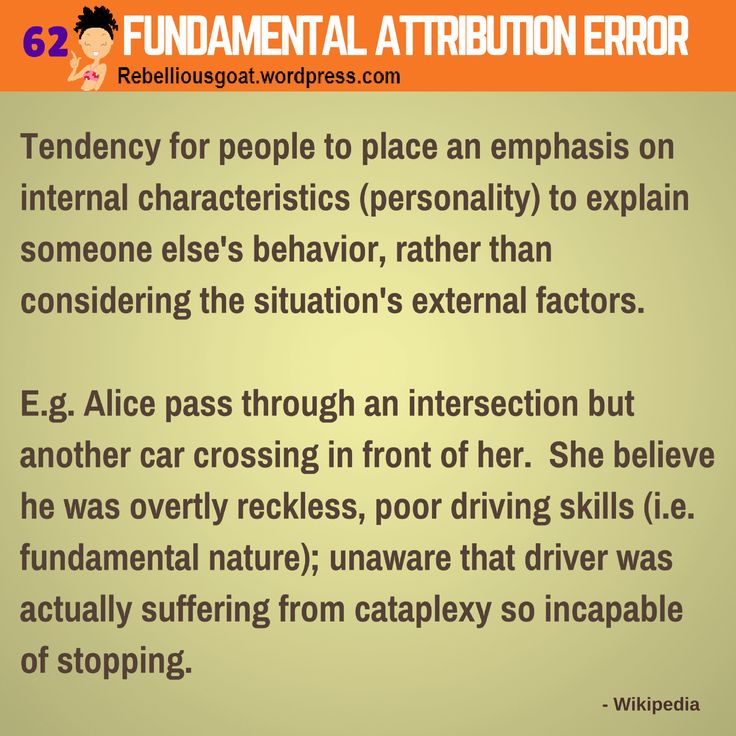
If the malignant narcissist has chosen their enabling spouse correctly, then they enjoy unchecked authority in the family. Usually, a child cannot be scapegoated without the implicit permission of an enabler parent. The ringleader of abuse in the family requires that everyone sees things how she sees them. If she sees the scapegoat as the abomination then her partner and other children better agree with her. She uses any means necessary to coerce the enabler parent and the scapegoat’s siblings into agreement. These other parties are enticed by having the favor of the narcissistic parent and deterred by the wrath that will follow if they dissent.
A malignant narcissist loves the sense of power in making others suffer. In other words, they harbor sadistic intentions. They are exquisitely envious of those who do not put them first. Envy is an emotion that drives one to want to spoil the good they see because they do not have it. Lastly, they lack empathy for others. They do not see the fact that their child is suffering as a reason to stop their behaviors.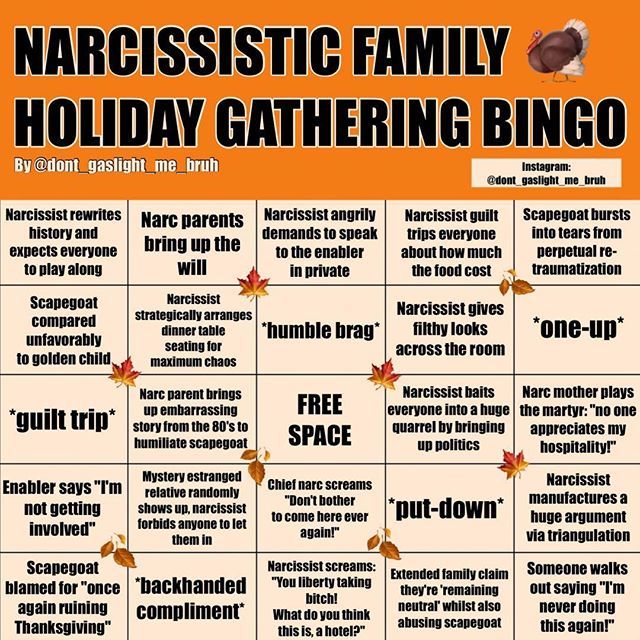
Chet* was a therapy client. His mother, Nancy, seemed to have cruelty in her heart from an early age. She told her classmates in fourth grade that she had cancer “to get attention”. Her younger brother one time accidentally broke a ceramic doll of hers and was bleeding profusely. Her face turned to a snarl and she screamed at him for breaking it. She became a special education teacher after college and curated an image of a nurturing, patient and kind woman. Meanwhile she would select one student in each of her classes to harass, control, and undermine. At one point her principal brought her up on disciplinary charges for “mistreating” one of her students. She transferred to a different school district and was able to continue her clandestine cruelty against new students. In relationships, she ensnared men into taking care of her monetarily and emotionally while complaining that they never appreciated all that she does for them. She married a man who was passive in their relationship and quickly set about triangulating with her ex-boyfriend.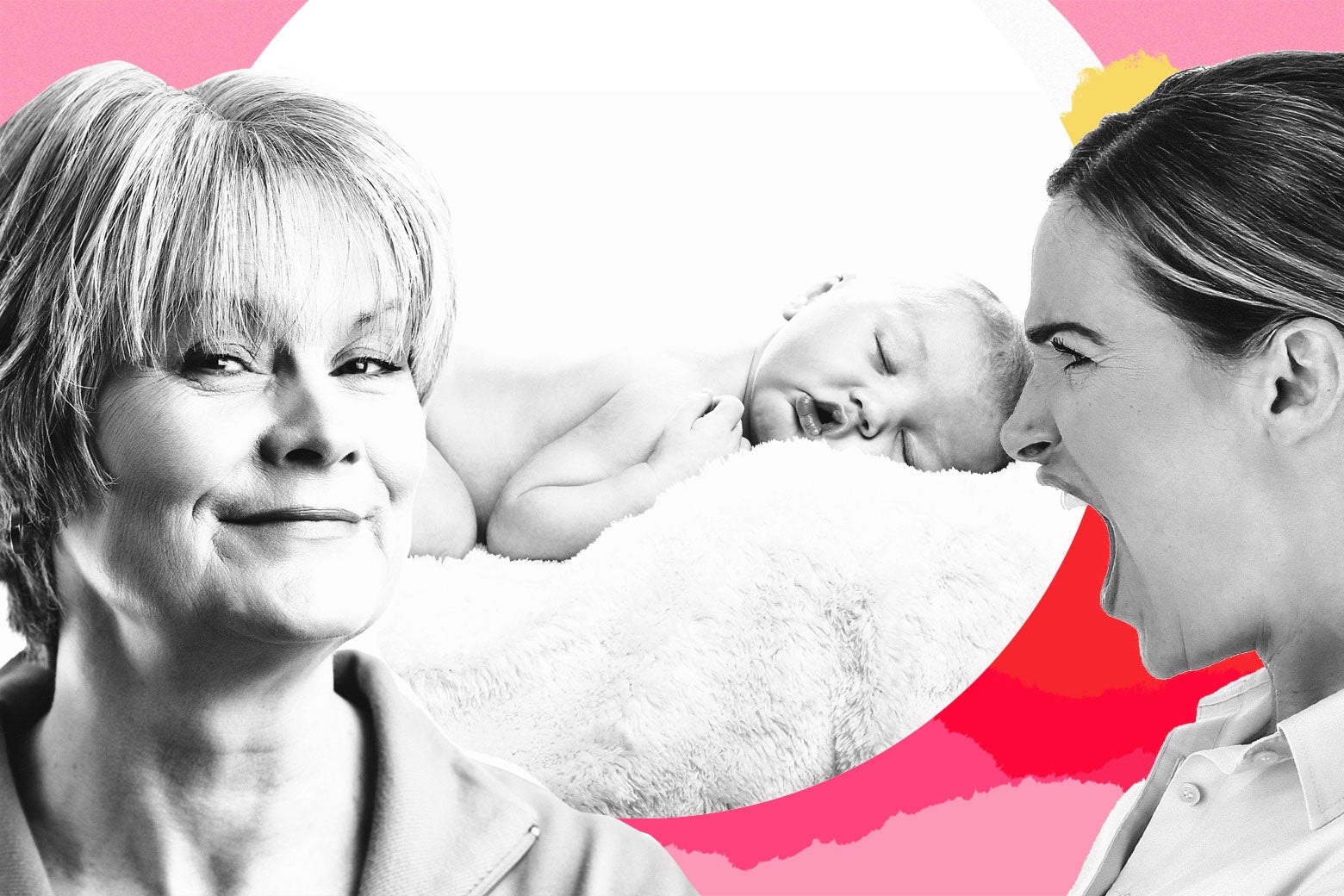 She would yell at her husband nightly that he was not communicating enough with her. His response was to grow more accomodating and ingratiating to her. She decided that she wanted to be a mother and gave birth to a son. Her son – Chet – was willful, loving, good-hearted, playful and tough. She hated him for these qualities. Three years later she gave birth to a daughter – Nathalie – who was much more compliant and admiring towards Nancy.
She would yell at her husband nightly that he was not communicating enough with her. His response was to grow more accomodating and ingratiating to her. She decided that she wanted to be a mother and gave birth to a son. Her son – Chet – was willful, loving, good-hearted, playful and tough. She hated him for these qualities. Three years later she gave birth to a daughter – Nathalie – who was much more compliant and admiring towards Nancy.
The arrival of Chet’s younger sister signalled a ratcheting up of Nancy’s scapegoating of him. In therapy, Chet recalled his mother criticizing him incessantly for eating too fast, picking his nose, not using correct table manners, leaving his toys out, and so on. Anything to keep him off-balance within himself. She bossed him around to do chores for as long as he could remember. He recalled one episode at age 5 when he went to MacDonald’s with his mother and sister. After they finished eating their happy meals his mother curtly told him “Throw this away” referring to the whole table’s trash.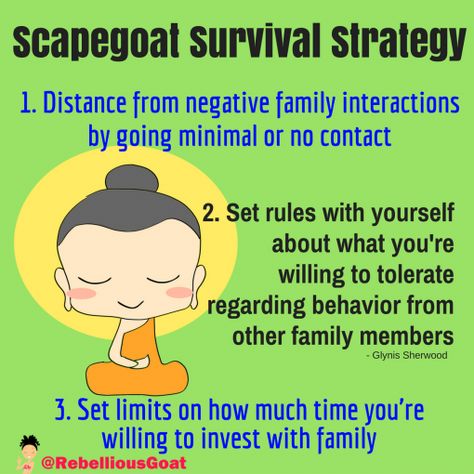 Chet remembered feeling enfuriated at her entitlement to his servitude and knew he had to protest but in a delicate way. His sharp mind thought he’d fashioned the right response so when he got back to their table he said, “I can’t wait til I grow up and can boss people around.” Nancy responded by snarling and squinting her eyes with a black look of murderousness. She bit off these words in a low barking tone: “How dare you say that I boss you around?! After all that I do for you and this is how you thank me? You are a selfish, mean little brat. Come on Nathalie, we’re going to the car. Chet you sit there.” Chet recalled feeling a searing jolt of shame and wanting to crawl out of his skin. He learned from that moment onward not to speak back – on his own behalf – to Nancy because her retaliations felt unsurvivable.
Chet remembered feeling enfuriated at her entitlement to his servitude and knew he had to protest but in a delicate way. His sharp mind thought he’d fashioned the right response so when he got back to their table he said, “I can’t wait til I grow up and can boss people around.” Nancy responded by snarling and squinting her eyes with a black look of murderousness. She bit off these words in a low barking tone: “How dare you say that I boss you around?! After all that I do for you and this is how you thank me? You are a selfish, mean little brat. Come on Nathalie, we’re going to the car. Chet you sit there.” Chet recalled feeling a searing jolt of shame and wanting to crawl out of his skin. He learned from that moment onward not to speak back – on his own behalf – to Nancy because her retaliations felt unsurvivable.
Scapegoating a child goes against the grain (thankfully!) of most of our schemas of parenting and even humanity. For a parent to go out of their way to blame his or her child at every turn, to revel in the sense of (false) superiority they derive, and to show no remorse is antithetical to the meaning of ‘parent’.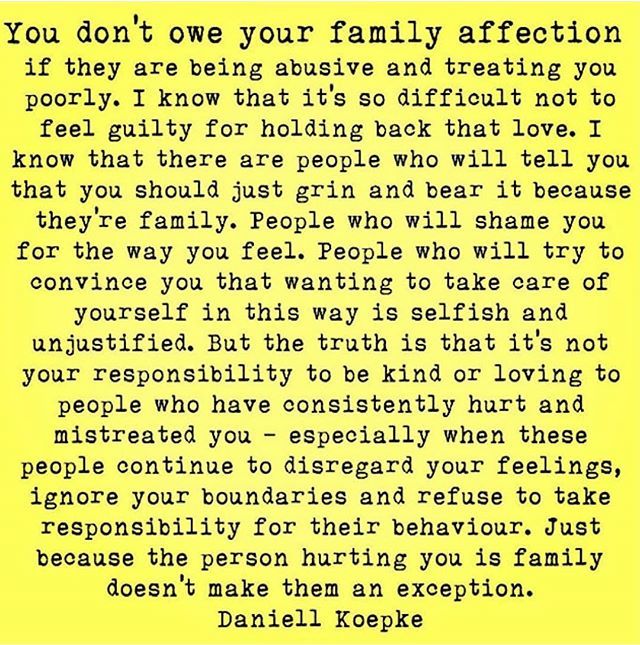 This process is covered in more depth in the online course on freeing yourself from narcissistic abuse.
This process is covered in more depth in the online course on freeing yourself from narcissistic abuse.
The latin root of the word ‘parent’ is ‘bringing forth’. We can think of parents as responsible for helping their children bring themselves forth into the world. They can do this in a lot of ways. They may notice and celebrate qualities of their child, take delight in the child’s displays of happiness, be available for support as needed, and show interest in what the child thinks, feels, and believes. That names just a few of how a child’s self can be ‘parented’ into the world.
A child who is scapegoated by a malignantly narcissistic parent actually has no ‘parent’ in the true sense of the word. He faces an adversary where biology tells him to expect an ally. More insidiously, a child is prone to believe their parent’s cruelty is their fault. So, the child earmarked for scapegoating faces one of the most unfair of fights. He must cope with the loss of an adult to help him bring himself forth and face the searing psychological torment of thinking he’s at fault for the loss. Thus, a malignant narcissist gets to land her ’emotional punches’ on the child with impunity and great effect.
Thus, a malignant narcissist gets to land her ’emotional punches’ on the child with impunity and great effect.
What makes a “good” Scapegoat?
In my personal and professional experience, children selected as scapegoats – like Chet – usually stand out. They possess a presence that is palpable to others. They often have a keen sense of fairness and instinctively protest injustice. They are perceptive and can see bad character when it’s present. They are often very empathic and care about others’ feelings. They are often protective of people they care about. They can be very intelligent. Most of all, they are tough. The malignant narcissist only chooses a child as a scapegoat who can take it. The former wants to see the child suffer but not so much that they cannot keep hurting them habitually.
Chet recalls one noble act that likely sealed his fate as the child to be scapegoated. Despite his younger sister’s alliance with his mother, Chet felt protective of her at a young age.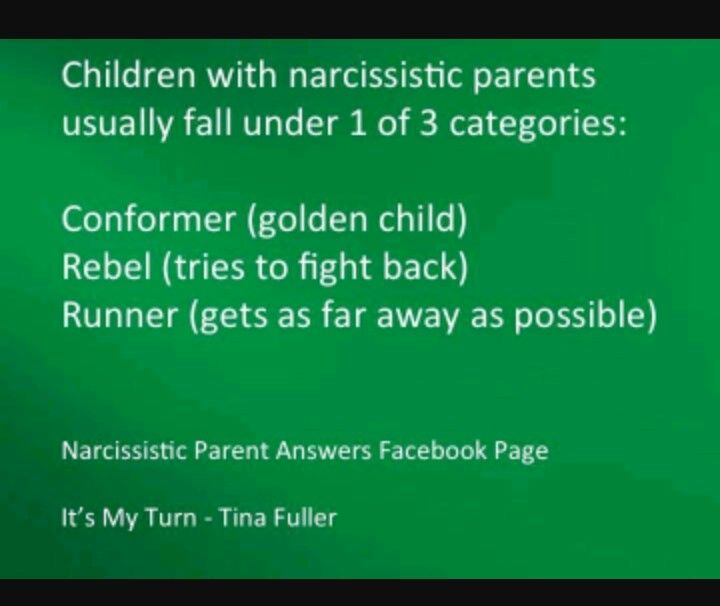 On Nancy’s birthday, Chet and Nathalie at ages 6 and 3 respectively, made Nancy dinner as a present. In the course of making meatballs, Chet recalls they decided to crunch up some graham crackers and put it in the mixture. As they sat down to eat this precociously prepared meal for a couple of kids, they giggled with each other. Nathalie asked her mother if she tasted anything different. When Nancy said she did not, Chet and Nathalie laughed harder. Nathalie told her mother: “We put graham cracker crust in them!”. Nancy stopped chewing, slammed her fork on the plate, and looked with rage at her daughter. Chet saw this and forcefully exclaimed: “Hey! Stop it! Don’t treat her like that. It was just a joke. Why are you so upset?”. Nancy looked at Chet and seemed to realize she could not continue her planned tirade against Nathalie. Chet felt good that he could stop her abuse of his sister even though nobody stood up for him when he was Nancy’s target.
On Nancy’s birthday, Chet and Nathalie at ages 6 and 3 respectively, made Nancy dinner as a present. In the course of making meatballs, Chet recalls they decided to crunch up some graham crackers and put it in the mixture. As they sat down to eat this precociously prepared meal for a couple of kids, they giggled with each other. Nathalie asked her mother if she tasted anything different. When Nancy said she did not, Chet and Nathalie laughed harder. Nathalie told her mother: “We put graham cracker crust in them!”. Nancy stopped chewing, slammed her fork on the plate, and looked with rage at her daughter. Chet saw this and forcefully exclaimed: “Hey! Stop it! Don’t treat her like that. It was just a joke. Why are you so upset?”. Nancy looked at Chet and seemed to realize she could not continue her planned tirade against Nathalie. Chet felt good that he could stop her abuse of his sister even though nobody stood up for him when he was Nancy’s target.
The courage and protectiveness that Chet displayed, likely made Nancy aware of how much more he possessed than she did.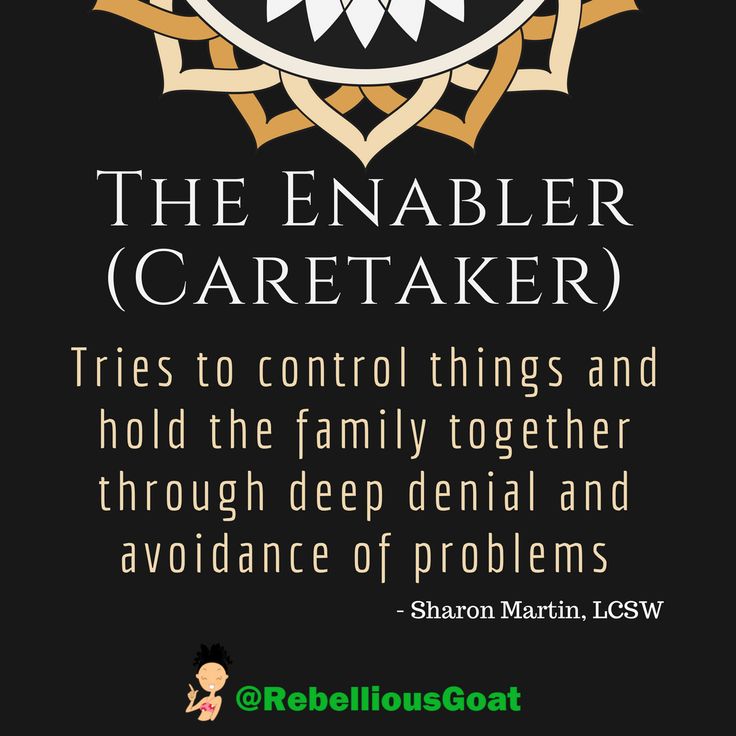 Her systematic abuse of him seemed driven by her hatred of him for being more decent than she could ever be as a human being. She knew that she was governed by the need to be cruel while he was driven by the need to love and protect.
Her systematic abuse of him seemed driven by her hatred of him for being more decent than she could ever be as a human being. She knew that she was governed by the need to be cruel while he was driven by the need to love and protect.
The hellish life of the scapegoated child
A scapegoated child knows depths of private suffering that can only be described as ‘hellish’. They are born with the biological need for care from people who hate them. It is like being thirsty and the only person who has water instead gives you sand – then mockingly laughs. A scapegoated child is attacked for some trumped-up charge, mercilessly punished and then denied appeal. They are constantly invalidated in their perspective. The family’s goal is to convince the scapegoated child that he or she is the sole reason for the family’s unhappiness. The child may come to believe that life is only worth living if he can figure out how to not be who he is.
When a child is cast as the enemy in his own family there is tremendous pressure to turn against himself.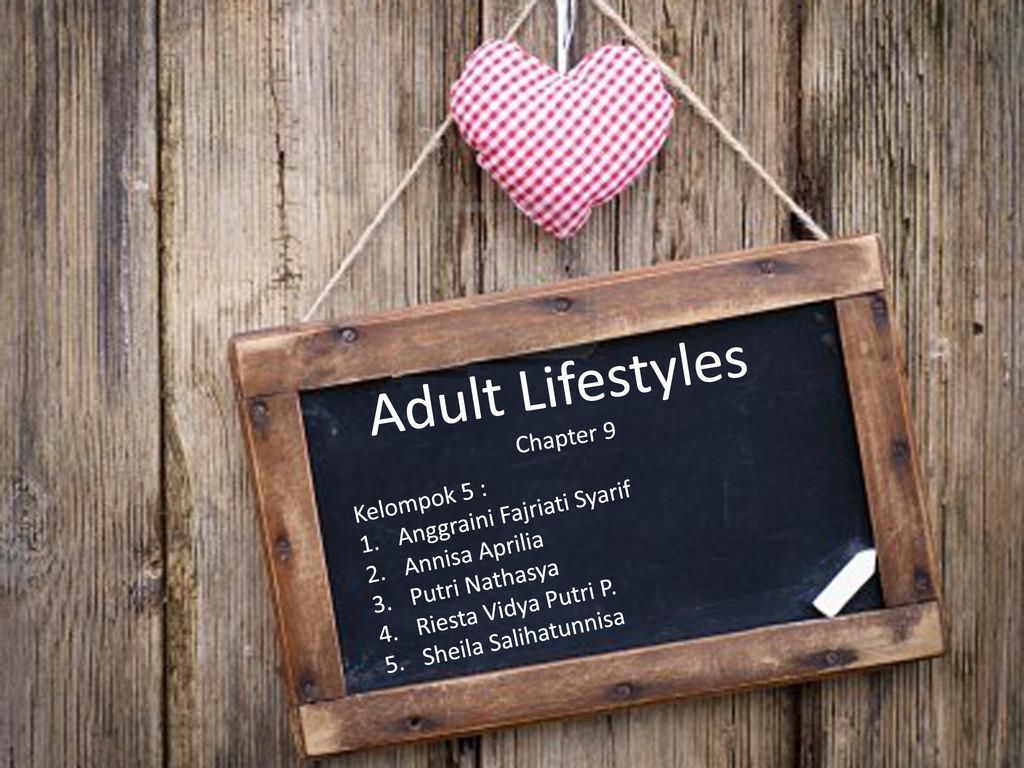 The adage – tragically – can apply: “If you can’t beat ’em join ’em”. Except that the scapegoated child has to join in the collective hatred of his existence. As discussed elsewhere, the child fears loss of attachment worse than abuse. At least getting mistreated involves contact.
The adage – tragically – can apply: “If you can’t beat ’em join ’em”. Except that the scapegoated child has to join in the collective hatred of his existence. As discussed elsewhere, the child fears loss of attachment worse than abuse. At least getting mistreated involves contact.
People who make it through childhood as a scapegoat often have to stow away their awareness of their good qualities. The child must hide his own appreciation of who he is lest he lose whatever connection is available or get abused even worse. The narcissistic parent wants the scapegoated child to believe they are as horrible as they are being told. If the child shows a sense of self-worth or self-possession the narcissistic parent will take this as an affront to their authority. In essence “How dare my child not think he’s as bad as I say he is! He must not respect me. I will make him pay.” To avoid this outcome, scapegoated children develop a set of self-defeating beliefs about themselves. These beliefs keep the narcissistic parent from attacking even harder.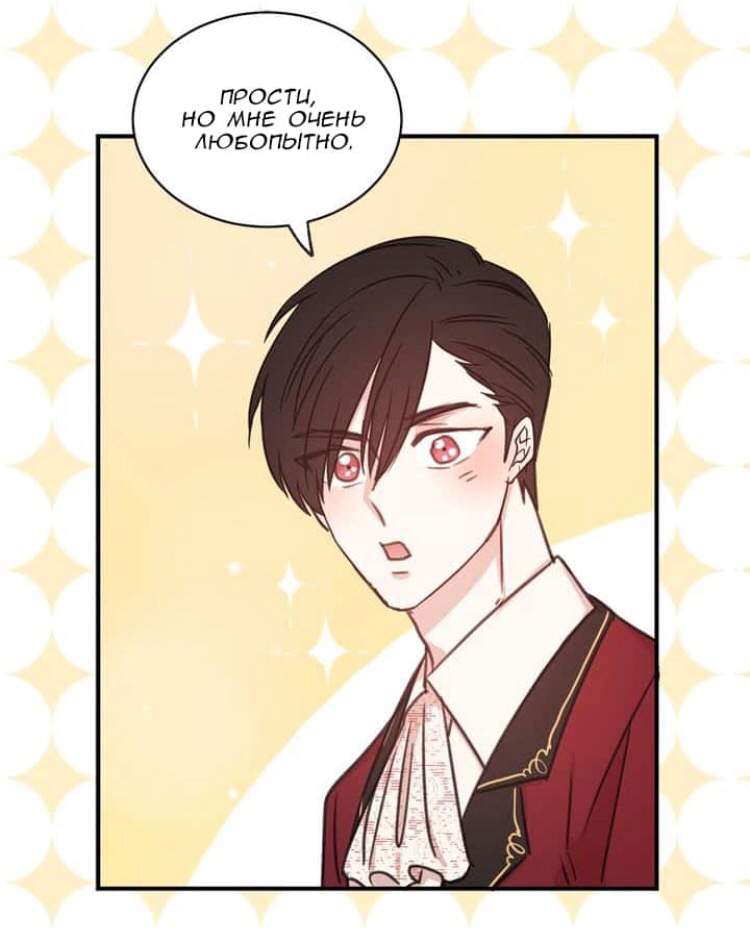
Common beliefs of adults scapegoated as children
Belief #1: “I am physically disgusting.”Sometimes scapegoated children are more physically attractive than their narcissistic parent. Through no fault of their own, this simple fact about them can roil the parent. As the child meets positive receptions for his or her looks outside the home, he or she may feel a deep sense of fear and confusion. “Why are people saying I’m pretty (or handsome)?”. The child may be particularly wary of the malignant narcissist catching wind of this. He likely knows that something bad happens when others tell him he is handsome etc.
One way to undo the threat posed by his or her good looks is to – unconsciously – distort one’s perception of the bodily self. An otherwise good-looking kid may decide that he or she is fat, has a big nose, too many pimples, has ugly hair, etc. If the threat of reprisal is great enough from the narcissistic parent, the scapegoated child can simply take such distortions as brute facts of his or her existence.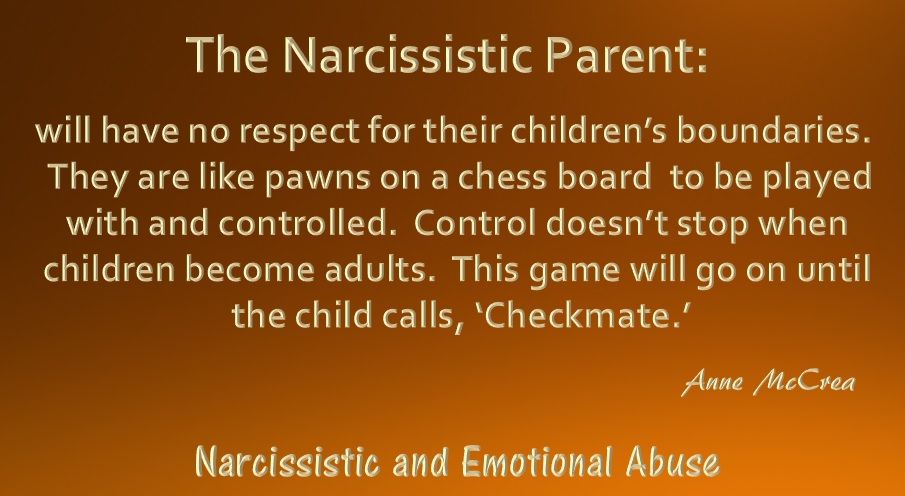 It’s not that she thinks she’s fat, ugly, etc. It’s that she just is this way. As uncomfortable as such perceptions are to live with, they are preferable to the cruelty that would ensue by the narcissitic parent who feels shown up. The psychology profession calls this phenomena Body Dysmorphic Disorder or BDD. Not everyone with BDD was scapegoated in their families of origin, but I do believe it can lead to this condition.
It’s not that she thinks she’s fat, ugly, etc. It’s that she just is this way. As uncomfortable as such perceptions are to live with, they are preferable to the cruelty that would ensue by the narcissitic parent who feels shown up. The psychology profession calls this phenomena Body Dysmorphic Disorder or BDD. Not everyone with BDD was scapegoated in their families of origin, but I do believe it can lead to this condition.
Scapegoated children can find the narcissistic parent’s hatred too violent to withstand. One way to cope with the horrific fact that your parent hates you for who you are is to substitute the idea that they hate you for what you do. Making this shift can afford the scapegoated child enough psychological breathing space to go on functioning. The reason is that this strategy offers hope that the parent might have a change of heart if the child can just “do right”. Things do not feel as unfixable.
Things do not feel as unfixable.
The drawback to this survival strategy is that the scapegoated child is thrust in to an endless loop of trying in the face of failure. No matter what the scapegoated child tries: do his chores perfectly, buy the narcissistic parent a gift, get good grades, etc., the parent will ultimately find them to be objectionable. In this system the child may redouble her efforts to ‘succeed’ rather than surrender to the horrible reality they face. As adults they may feel ill-at-ease when not doing some activity to ‘better themselves’ in some way or another. Stretches of free time can feel foreboding because the privilege of enjoying their own company was one their parent actively worked to forbid them.
Belief #3:”I am always one mistake away from complete ruin.”Scapegoated children often feel like their existence hangs in the balance of each moment. Something final, awful and dreadful could happen if they make the ‘wrong move’. A narcissistic parent who has scapegoated the child is already going to find them to be in the wrong. The ensuing onslaught of yelling, beating, or worse is how they terrorize the child. Somewhere in themselves, the scapegoated child knows that their fate is going to be awful: the narcissistic parent is going to thrash them, it’s just a question of when and how. The child must find a way to manage the monumental anxiety they experience in the face of such ongoing threat. One way to do this is to boil down their existence to each moment. No looking forward. No looking backward. Just what’s here right now. The looming dread of what could happen but it exists more in the shadows. The payoff to this strategy – again – is the ability to go on functioning in the face of chronic efforts to destroy their quality of life.
A narcissistic parent who has scapegoated the child is already going to find them to be in the wrong. The ensuing onslaught of yelling, beating, or worse is how they terrorize the child. Somewhere in themselves, the scapegoated child knows that their fate is going to be awful: the narcissistic parent is going to thrash them, it’s just a question of when and how. The child must find a way to manage the monumental anxiety they experience in the face of such ongoing threat. One way to do this is to boil down their existence to each moment. No looking forward. No looking backward. Just what’s here right now. The looming dread of what could happen but it exists more in the shadows. The payoff to this strategy – again – is the ability to go on functioning in the face of chronic efforts to destroy their quality of life.
It’s important to note that boiling everything down to the present moment is different from being “in the now”. One can only be mindful when they feel sufficiently safe to do so. A scapegoated child is not afforded the necessary goodwill and space to be present in the mindful kind of way. This is more like taking a snapshot instead of a video. To only look at this moment rather than how they are being treated over time. To do the latter would bring to awareness how hopelessly mistreated they have been and the lack of any viable escape routes.
A scapegoated child is not afforded the necessary goodwill and space to be present in the mindful kind of way. This is more like taking a snapshot instead of a video. To only look at this moment rather than how they are being treated over time. To do the latter would bring to awareness how hopelessly mistreated they have been and the lack of any viable escape routes.
A malignantly narcissistic parent wants to drill into the scapegoat the notion that he or she is inherently defective. If a child is scapegoated from an early age, he or she may feel a deep sense that there is something wrong with them. Objectively, there is so much right with such children and so much wrong with the narcissistic parent but that is not what gets internalized for the child. The child may have natural social grace or a good sense of humor but fear social interactions. They may shy away from making friends and later relationship partners out of compliance with what feels like a fundamental truth about themselves.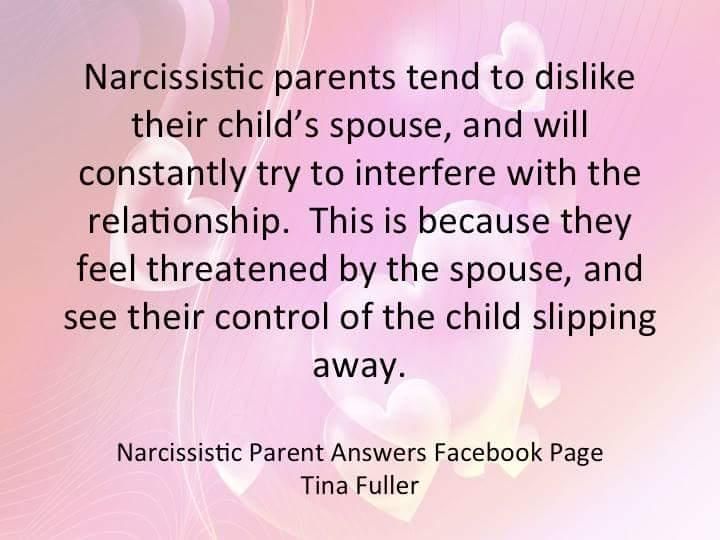 Similarly, they may be athletically gifted but feel overmatched in competitive situations and unable to utilize their potential.
Similarly, they may be athletically gifted but feel overmatched in competitive situations and unable to utilize their potential.
Scapegoated children are forbidden to know what they are good at. To do so would be to defy the narcissist’s contention that they are good-for-nothing. As stated above, the narcissist would take the child’s possession of their skills or talents as an affront to their authority. Such children grow to know this. This belief protects them from the narcissist’s envious attack. It also protects the child from having something of value – like self-esteem or pride – and getting it ripped away by the parent. Managing such losses is a high priority for the scapegoated child. He or she can only bear so many. A low-level ongoing sense of diminishment is much preferable to the traumatic loss of a cherished sense of themselves.
Belief #6:”If I disagree, I will be hated and exiled.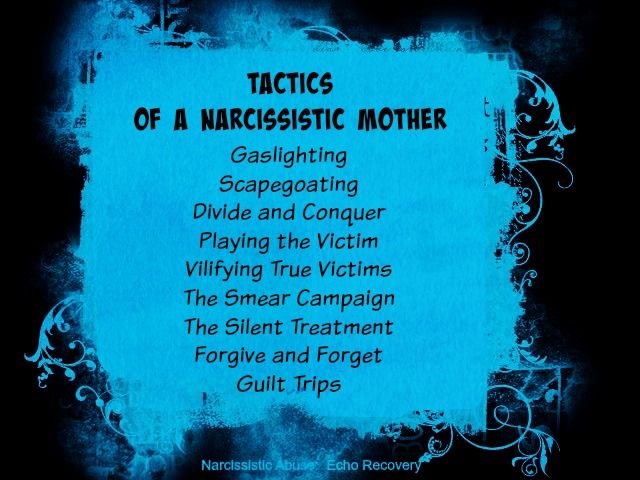 ”
”This belief is a simple observation for the scapegoated child. They know that if they defy the malignant narcissist’s claims that the child is the source of unhappiness that they will suffer an even worse fate. Scapegoated children are often threatened with exile from the family – and to great unfortunate effect. Despite how torturous the child is treated in the family, the threat of being exiled can feel even worse. Such children learn to present a compliant and agreeable persona to the family members to avoid their hatred and expulsion. The child must police his impulses, reactions, and perceptions to suppress any expression that would be taken as disagreement.
As adults, scapegoated children may find themselves paralyzed with fear when they consider dissenting in work environments or with their partners. Disagreeing with someone brings oneself into the forefront. The act delineates the self in stark relief. It is what allows for ‘dialogue’ in the true sense of the word.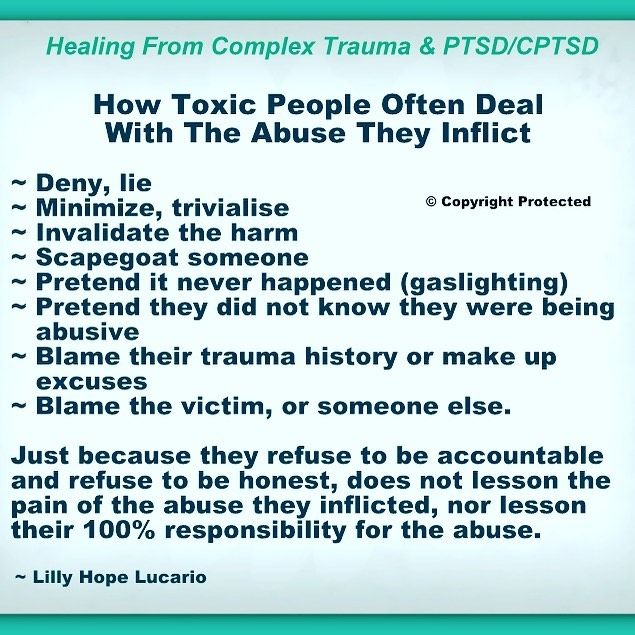 Martin Buber would refer to this as the “I-thou” kind of relationship where two subjectivities are brought into authentic contact with one another. A person can feel safe to disagree when they can expect to be received with curiosity, non-defensiveness, and responsiveness. Scapegoated children were not afforded such receptions. Instead they had to hide themselves at all times. The bringing forth of themselves that an act of disagreement requires was simply too dangerous.
Martin Buber would refer to this as the “I-thou” kind of relationship where two subjectivities are brought into authentic contact with one another. A person can feel safe to disagree when they can expect to be received with curiosity, non-defensiveness, and responsiveness. Scapegoated children were not afforded such receptions. Instead they had to hide themselves at all times. The bringing forth of themselves that an act of disagreement requires was simply too dangerous.
This coping strategy can (wrongly) lead the scapegoated child to conclude that he or she cares too much about what other people think. In fact, I hear this a lot from adults who were scapegoated as children. Importantly, we all care what others think about us when we disagree. Some people have had the fortune to believe that others will think good things about them for disagreeing. People who were scapegoated have the misfortune to believe that others will think hateful things about them for disagreeing. I believe that any human being who expects to be hated and exiled by those he needs most would avoid disagreeing.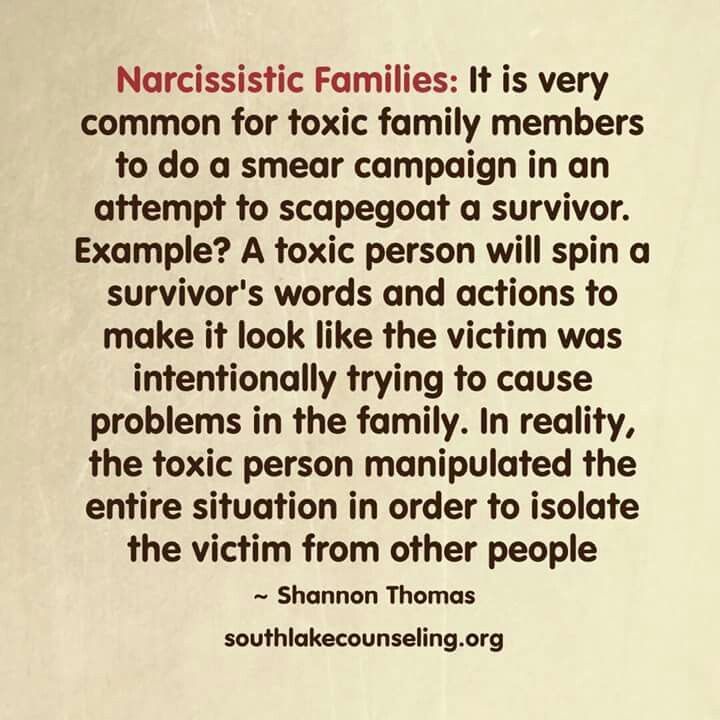 In therapy, the task is not to to shed the concern of what others think of them. Rather, the task is to consider how people today probably think quite well of them when they disagree. So, still care about what others think but find a way to pay attention to the good news that people outside of their family will welcome their perspective even when it expresses disagreement.
In therapy, the task is not to to shed the concern of what others think of them. Rather, the task is to consider how people today probably think quite well of them when they disagree. So, still care about what others think but find a way to pay attention to the good news that people outside of their family will welcome their perspective even when it expresses disagreement.
Therapy to recover from being scapegoated
Chet was a twenty-something single successful software engineer when he came to therapy. He reported that although he is able to get done what needs getting done at work and has some friends, inside he felt miserable. He felt anxiety and dread at what others thought of him, difficulty knowing what to do in his free time, and a chronic sense of dis-ease in his own skin.
At first, Chet said he grew up in a supportive family. As a therapist, I have found that suffering at the level that Chet experienced usually does not spring from a rosy upbringing. And here went our exchange:
And here went our exchange:
Me: How might your mother react when angry at you?
Chet: Well she would scream at me and slam things down. She’d call me selfish, inconsiderate, and that I don’t care about the family at all. But, I mean, she was right. She wouldn’t have yelled if I wasn’t such a bad kid.”
Me: Chet, there is no way you were bad enough to warrant that kind of abuse.
And so began Chet’s path to recovery from his malignantly narcissistic mother’s scapegoating of him. For individuals who have survived a childhood of being targetedly and chronically undermined in their development, the task of therapy is to bust the myths about themselves they were forced to believe and find it safe to know the truth about themselves – that they are a good and deserving person.
Therapy may begin with client’s identifying ways they are flawed. “I care too much about what others think”, “I can’t stay self-disciplined”, “I am not a good communicator”, and so on.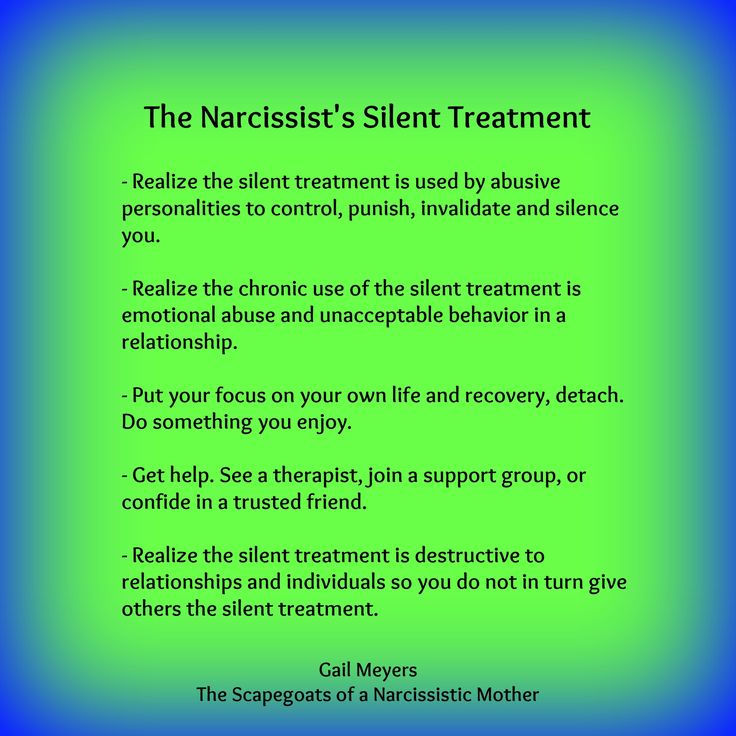 It can be important to acknowledge these concerns while also challenging them. Scapegoated children have no trouble taking responsibility for their shortcomings – the problem lies in taking credit for their strengths. Over time – sometimes significant lengths of time – such clients can come to question their critical view of themselves. They gradually shift the focus of their inner torment from themselves to their families of origin. As this shift takes hold, the client will dare to find less wrong with themselves and look for the source of what feels wrong in their scapegoating family. Often clients who have been scapegoated are very empathic with everyone but themselves. As the legacy of scapegoating gets identified and challenged, clients can direct some of that empathy towards themselves. A massive achievement comes when clients are able to regard their own needs to be as important as others.
It can be important to acknowledge these concerns while also challenging them. Scapegoated children have no trouble taking responsibility for their shortcomings – the problem lies in taking credit for their strengths. Over time – sometimes significant lengths of time – such clients can come to question their critical view of themselves. They gradually shift the focus of their inner torment from themselves to their families of origin. As this shift takes hold, the client will dare to find less wrong with themselves and look for the source of what feels wrong in their scapegoating family. Often clients who have been scapegoated are very empathic with everyone but themselves. As the legacy of scapegoating gets identified and challenged, clients can direct some of that empathy towards themselves. A massive achievement comes when clients are able to regard their own needs to be as important as others.
In essence, therapy helps client feel emotionally and psychologically safe to do, feel, and be the things that their malignantly narcissistic parent and enabling family members would have seen as an affront to their authority.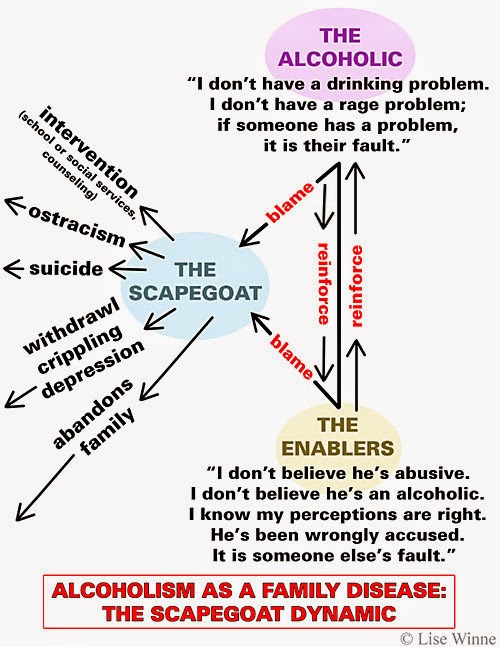
In addition to therapy, I’ve developed an online self-study course designed to help the scapegoat survivor of narcissistic abuse accomplish these three steps in his or her recovery:
1) make sense of what happened
2) put distance between oneself and one’s narcissistic abuser
3) live in defiance of the kinds of beliefs discussed in this article.
*All references to clients are amalgamations of people, papers, books, life that do not directly refer to any specific person.
Jay Reid is a Licensed Professional Clinical Counselor (LPCC). If you are considering therapy to recover from narcissistic abuse please contact me for a free 15-minute phone consultation.
Children of a narcissistic mother: scapegoat and pet
Children of a narcissistic mother: scapegoat and pet
A narcissistic mother is different in that she treats her children differently. She divides children into favorites and unloved. Some she loves—if you can call it that, because she cannot love in principle—and others she doesn’t really love, or even hates, and even worse, she feels disgust. Some become "golden children", very valuable, very prestigious, while others become "scapegoats" who are worth nothing.
She divides children into favorites and unloved. Some she loves—if you can call it that, because she cannot love in principle—and others she doesn’t really love, or even hates, and even worse, she feels disgust. Some become "golden children", very valuable, very prestigious, while others become "scapegoats" who are worth nothing.
The mother feels irritation, contempt and disgust to the “scapegoat”. She gives him neither love nor attention. She ignores, reproaches, condemns, shames, makes fun of the child: “Petya, your hands are growing from the wrong place, look at Olya (pet) - she can do anything.”
"Scapegoats" suffer because their mother humiliates them, offends them, exploits them, they are victims of domestic violence. The scapegoat tries his best to please the mother, but it is unsuccessful, she will never please her in anything. Whatever he does, it will be bad. Such a child has very low self-esteem and a constant sense of guilt. He has blurred his own boundaries, he does not understand what he did wrong.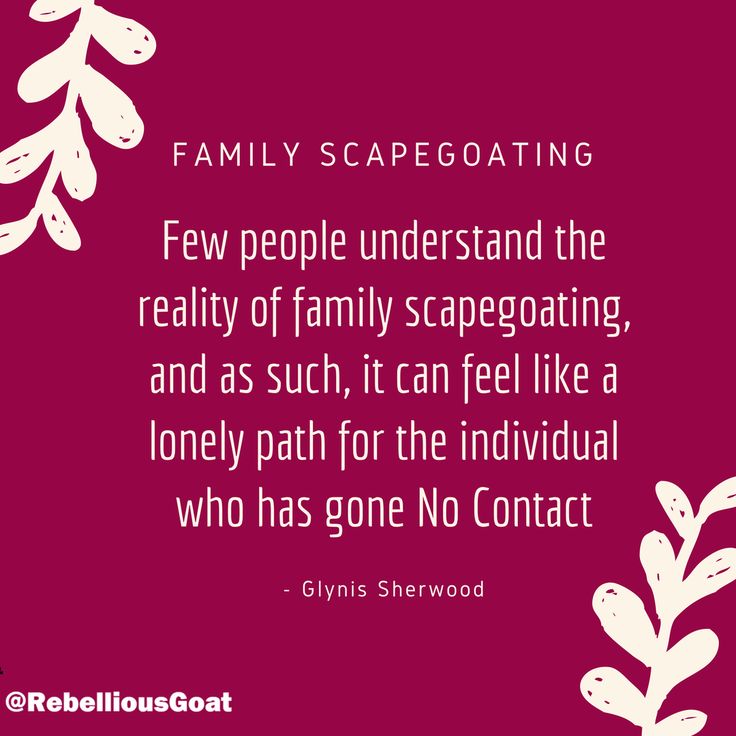 He sees that the pet, no matter what he does, always receives approval and support, and he himself, no matter how hard he tries, does not receive anything but reproaches. He is always given as an example of a pet, and he does not understand why he is worse. He envies the pet and hates him, and this is not surprising.
He sees that the pet, no matter what he does, always receives approval and support, and he himself, no matter how hard he tries, does not receive anything but reproaches. He is always given as an example of a pet, and he does not understand why he is worse. He envies the pet and hates him, and this is not surprising.
The scapegoat is constantly trying to prove to his mother that he is good, so that she will praise him, just like her pet. Without her assessment, he himself does not know what he is, does not see his value. Desperate to become good, he decides that he is worthless and of no use. Low self-esteem provokes depression and suicidal thoughts, and sometimes suicidal acts.
One of my clients said about her mother: “I lost my soul as a child. She drank it all in one sip. I don't feel like I represent myself, I don't know who I am. What she tells me about me is what I think to myself. I don't know what I like, what I don't like, but I know what my mother likes or doesn't like.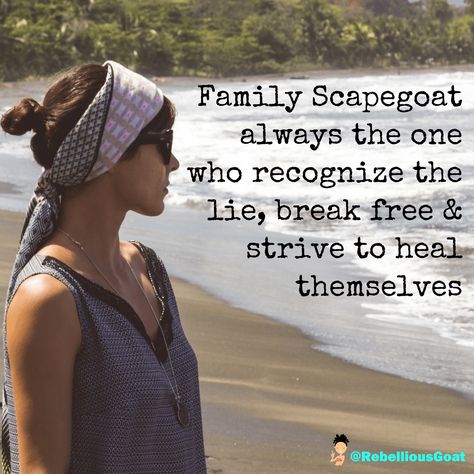 I don’t know what kind of person I am, what my strengths and weaknesses are, who I want to become, whether I should even live.”
I don’t know what kind of person I am, what my strengths and weaknesses are, who I want to become, whether I should even live.”
Mother was jealous of her beauty (the girl is really very beautiful) and did everything possible to prevent her daughter from looking better than her. The mother competed with her and tried to switch the attention of men from her daughter to herself. In this sense, the Stepmother from Snow White and the Seven Dwarfs is the perfect example of a narcissistic mother.
Pets, or the so-called "golden children", receive a completely different attitude. Their mother adores, admires, cares for and cherishes, gives gifts, gives money, slips tidbits. It would seem that this is good for them. But pets also suffer and are also victims of the narcissistic mother. They have a big identity problem. They are not allowed to be who they want to be. Their mother rewards them for embodying her ideal image of a child. They are like an extension of their mother. They must live up to the expectations placed on them.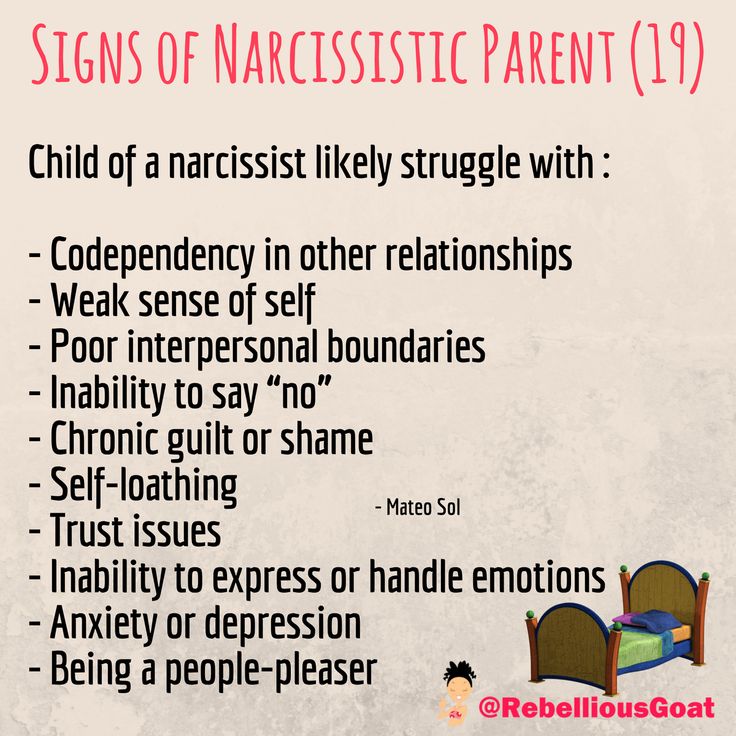 In the image and likeness of the mother, they begin to control everyone. They manipulate people from a very young age. Growing up, they cannot understand what they want, they cannot make their choice, they cannot think and decide for themselves what to do, what university to enter, what they generally do in life. They try to enter a prestigious university, make the right contacts and surround themselves with influential people. They buy expensive things, do what is socially approved, and not what they themselves are inclined to. Since childhood, they have been oriented towards capturing the imagination of others and gaining their appreciation and admiration, rather than revealing their own individuality.
In the image and likeness of the mother, they begin to control everyone. They manipulate people from a very young age. Growing up, they cannot understand what they want, they cannot make their choice, they cannot think and decide for themselves what to do, what university to enter, what they generally do in life. They try to enter a prestigious university, make the right contacts and surround themselves with influential people. They buy expensive things, do what is socially approved, and not what they themselves are inclined to. Since childhood, they have been oriented towards capturing the imagination of others and gaining their appreciation and admiration, rather than revealing their own individuality.
The "Golden Child" is praised, approved, protected and often separated from other children, protected from bad influences. Mother creates exceptional conditions for him, considering him special. Presents it to his friends as an object of achievement and pride. This is the embodiment of her dream, perhaps her unrealized opportunities.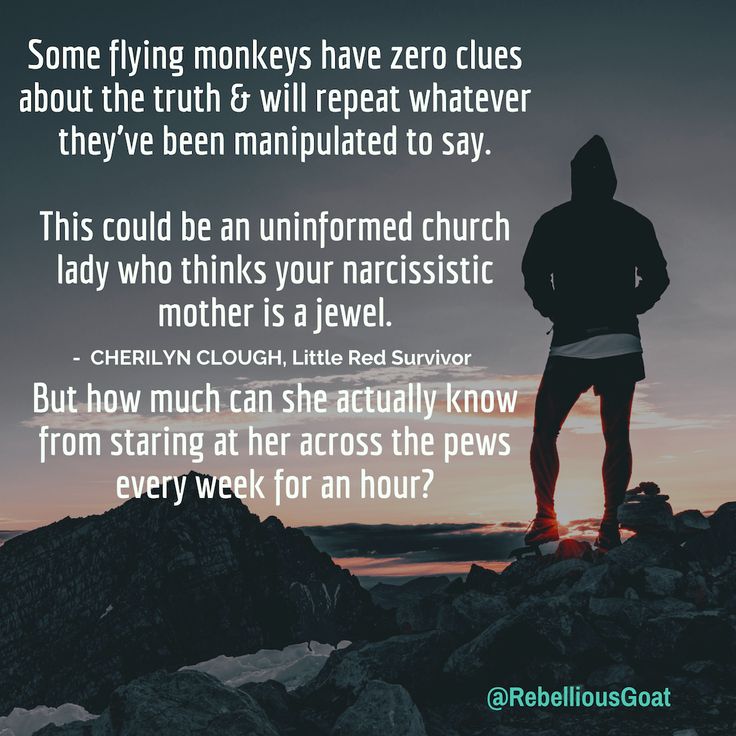 She puts a lot of effort into her pet and it feeds her ego and her grandiose image. This is the meaning of her life. She looks at him and admires herself: "How much I have done for him, how much has been achieved." The "Golden Child" falls into the trap of duty to his mother and is forced to thank her, please her for the rest of her life and meet her expectations.
She puts a lot of effort into her pet and it feeds her ego and her grandiose image. This is the meaning of her life. She looks at him and admires herself: "How much I have done for him, how much has been achieved." The "Golden Child" falls into the trap of duty to his mother and is forced to thank her, please her for the rest of her life and meet her expectations.
The golden child is usually successful. But all his achievements come at the expense of the rest of the children in the family. He usually gets all the attention, time, money and even an inheritance. And the rest of the children remain offended, destroyed and depressed. The "golden child" adores the mother, protects her and sees how much has been done, and the "scapegoat" suffers and tries to earn the same love as the "golden child". But he doesn't get anything.
Thus, the mother feeds on the energy of the suffering of the "scapegoat" and the energy of admiration of the "golden child". She enjoys the children fighting for her love.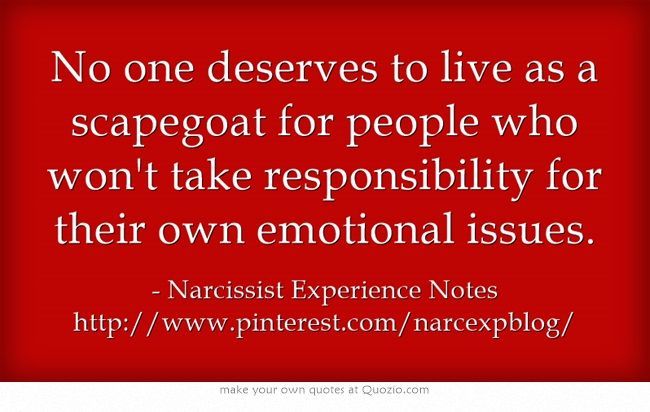 When a mother rewrites an inheritance for one child, she continues to push her children head-on even after death. From the other world, she enjoys the struggle and suffering of her own children.
When a mother rewrites an inheritance for one child, she continues to push her children head-on even after death. From the other world, she enjoys the struggle and suffering of her own children.
Children of a narcissistic mother grow up with psychological problems, both types can become narcissists, but a golden child is more likely to become a narcissist than a scapegoat. Usually the scapegoat falls prey to other narcissists.
Tatyana Dyachenko
When we imagine family relationships between children and parents, then first of all a picture pops up before my eyes care, love, support and open communication: here children play with parents in snowball fights or go all together to the beach, fry shish kebab on having a picnic, celebrating or celebrating important events together, etc. Yes, Of course, there are families whose life looks exactly like this, according to at least in old photo albums or on Instagram pages; families from whose life you can take pictures for a typical TV advertising. However, in dysfunctional families, family ties organized quite differently and they don't look so nice. Especially when at the head of the family ship is the controlling mother, the mother of the narcissist or mother is a brawler. Then you can often see how she makes a child a scapegoat.
However, in dysfunctional families, family ties organized quite differently and they don't look so nice. Especially when at the head of the family ship is the controlling mother, the mother of the narcissist or mother is a brawler. Then you can often see how she makes a child a scapegoat.
Scapegoat: The glue that holds the family together.
There is a special psychological term in English - "scapegoat" - "scapegoat" and the verb "to scapegoate someone" - make someone a scapegoat. Goat - goat, then ritual animal that was most often sacrificed to appease anger gods and they would have forgiven the common sins of the tribe. And such sacrifice can be found in the history of most (if not all) groups - in entire nations, cities, organizations and businesses, in individual families - especially in difficult times. Goat choice absolution and blaming him/her/them for all problems, immediately reinforces not only a sense of unity (ours against yours), but gives leaders of authoritarian communities an explanation of all social problems.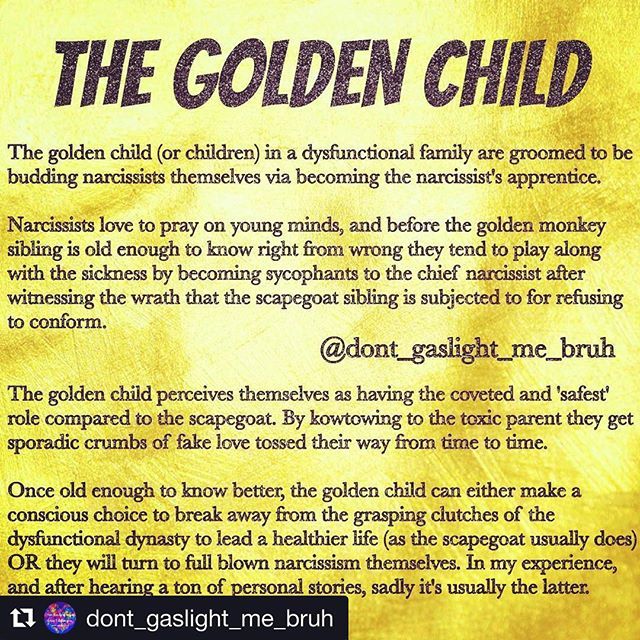
This process also occurs in families and can be called as conscious and unconscious motives. The role of the goat absolution can be both temporary (and family members can take turns be in it), and permanent. Let's first talk about temporary role and how it affects family interactions.
When it's your turn to be the whipping boy.
In a family with a controlling mother, a scapegoat may all members of the family are appointed in turn. Almost no chance of it to avoid; she is a perfectionist who believes there is always clear "right" and "wrong" and therefore it needs to Everything has always been "as it should be". When something doesn't go according to plan or since she saw it for herself, she needs it as a reason for such "catastrophes", and the person (not herself), who in all this "guilty". A controlling mother can very rarely allow the thought that perhaps it was her mistake that led to what she thinks disaster.
For example, if dogs ran into a neighbor's garden and dug plants, then it must be the fault of Misha or Sveta, who are not closed the door too carefully and the child will be stimulated “Tell the truth” about a sister/brother or snitch on each other.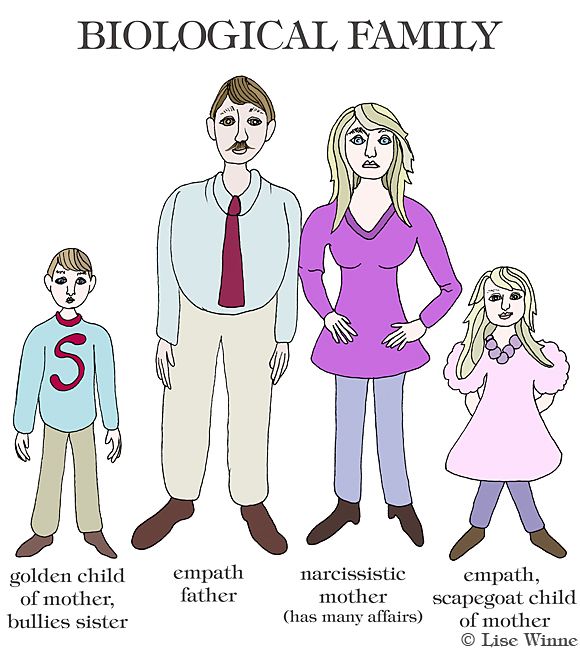 Controlling people need to know that for any bad events There are specific reasons and there is always someone to blame. Suppose vandals got to the family car on the site. Of course, any a person will be annoyed and upset by this fact, but adapted a person understands that this is just an incident that can happen to everyone. But not a controlling person who immediately the thought will come to mind that when Katya returned home, she did not left the porch light on. Voila! She instantly becomes scapegoat in the mind of a parent who is now sure that if the light were on, the hooligans would never dare to approach to the car. Yes, thus vandalism becomes Katya's "fault" in this particular family.
Controlling people need to know that for any bad events There are specific reasons and there is always someone to blame. Suppose vandals got to the family car on the site. Of course, any a person will be annoyed and upset by this fact, but adapted a person understands that this is just an incident that can happen to everyone. But not a controlling person who immediately the thought will come to mind that when Katya returned home, she did not left the porch light on. Voila! She instantly becomes scapegoat in the mind of a parent who is now sure that if the light were on, the hooligans would never dare to approach to the car. Yes, thus vandalism becomes Katya's "fault" in this particular family.
Knowing that someone is bound to be blamed, regardless of circumstances, sets siblings against each other in struggle for the favor of the mother. Part of this fighting strategy becomes involved in the accusation:
“My whole childhood was a walk through a minefield, I tried by all means not to get caught by the mother's arm.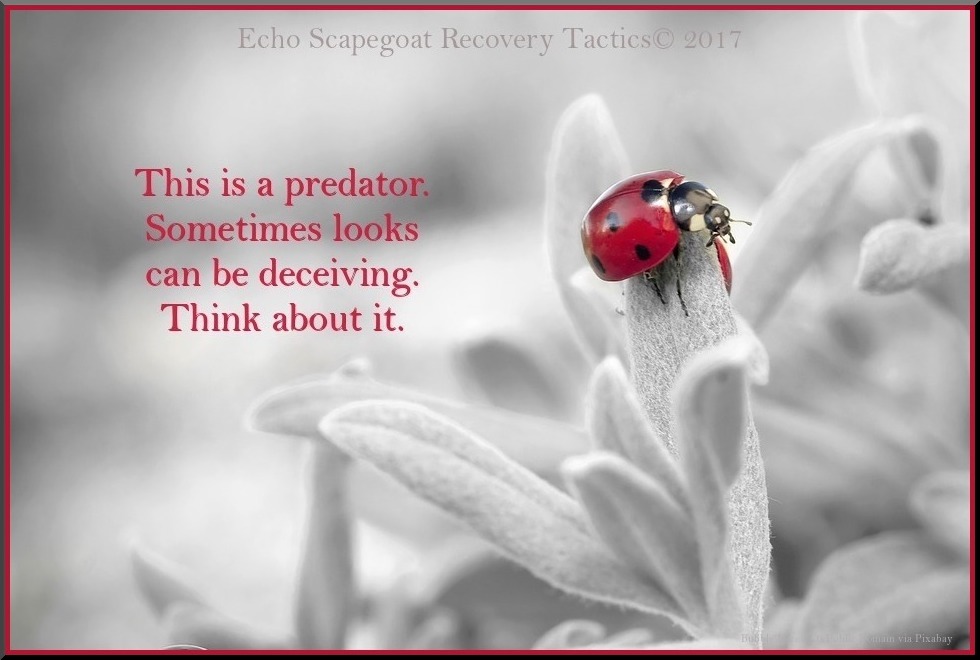 Every morning was torture, because if we were late for school, then it had to be whipping boy. My brother at such moments immediately began blame everything on me or my sister, so long as they don't blame him. And now already being an adult, he is exactly the same - everyone around is to blame. I Now I don’t communicate with either my brother or my sister.”
Every morning was torture, because if we were late for school, then it had to be whipping boy. My brother at such moments immediately began blame everything on me or my sister, so long as they don't blame him. And now already being an adult, he is exactly the same - everyone around is to blame. I Now I don’t communicate with either my brother or my sister.”
If the mother is a brawler, she also takes turns choosing sacrifice, not only to maintain control over children, but also in order to maintain her conviction that she does a great job. She does not consider herself a source bullying, she sees herself as an authority that must support order and boundaries in her understanding.
All of the above has more unfortunate consequences for individual development if someone is selected for a permanent role scapegoat. This usually happens when the mother is very narcissistic traits are expressed, and she likes to play games of "favorites and outcasts" so that all attention is drawn to her.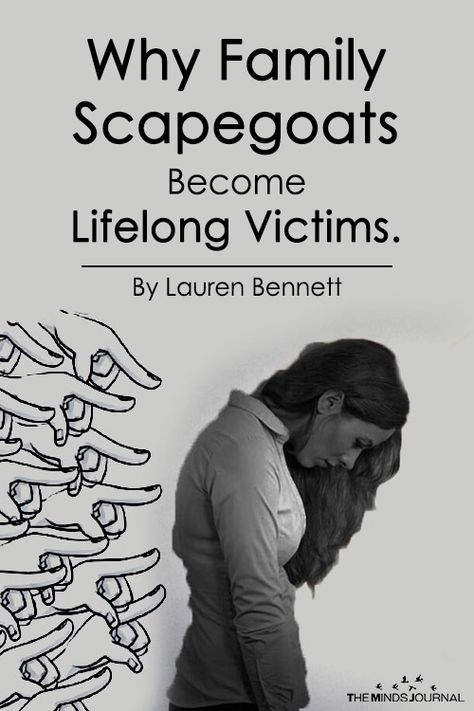
Official scapegoat.
In an interesting article, Gary Gemmill notes that when family child is chosen as the scapegoat, then this allows all members families to think of themselves as more emotionally healthy and more stable than they really are, because they are no longer need to be held accountable for their actions and behavior. That is, in fact, all the problems in the family (with which, with such mother struggles with difficulty) - this is the same scapegoat, and if we all finally with him / her “we’ll do something already” or “we’ll force her to change behavior," then life will get better.
Constant scapegoat allows narcissistic mother see meaning in family dynamics and all the negativity that is happening can can be easily explained, and this does not in the least cast doubt on her role "ideal" mother and does not disturb her with the need for reflection own attitudes and actions. She always has ready explanation for any problem within the family and any deviation family relations from the model that she considers ideal.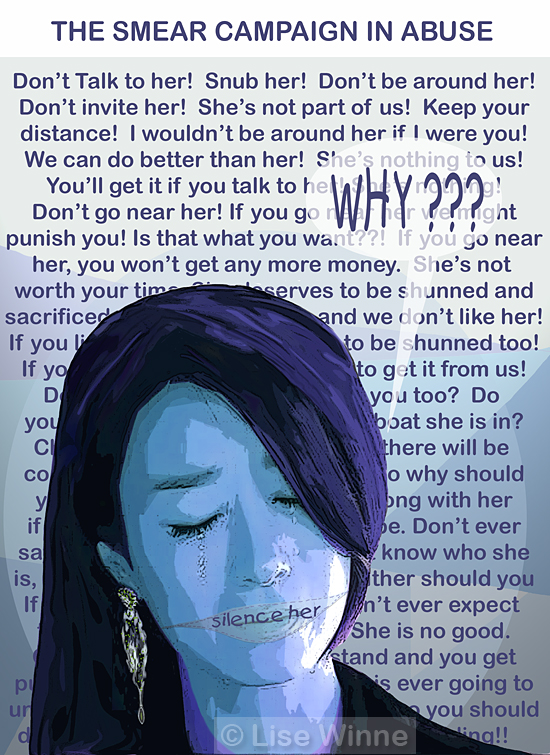 Similarly, the attention of other children in the family is diverted from the activities mother and is instead focused on the person "because of whom constant trouble."
Similarly, the attention of other children in the family is diverted from the activities mother and is instead focused on the person "because of whom constant trouble."
While the ulterior motives for choosing a scapegoat may not be realized by the mother supporting such a situation - she does not understands this as a tactic to maintain the image of an ideal family, disguising dysfunctional processes behind the facade - harassment and humiliation scapegoats are supported very consciously. With a narcissistic mother, it often happens that other children join her team by weed. And then the scapegoat becomes part of the family mythologies are the very stories that the boats of the family tell about his family, both in childhood and already in adulthood with full confidence that this is the "truth". It's like in Hollywood westerns - there are cowboys and Indians, good kids and bad and then family scenarios are absolutely predictable.
The presence of an official scapegoat makes it impossible any form of open dialogue about the mother's behavior or how family members interact with each other.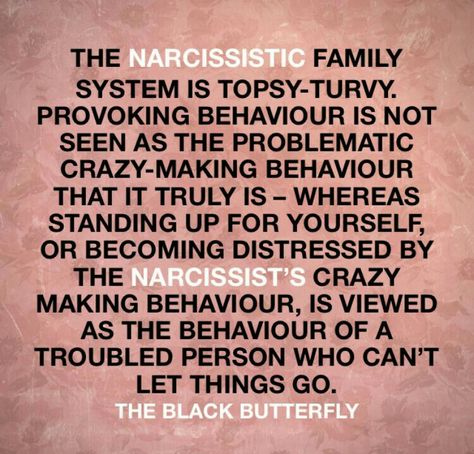 Scapegoat enhances the image of a suffering mother and makes her inaccessible.
Scapegoat enhances the image of a suffering mother and makes her inaccessible.
And although it may sound counterintuitive, but such a family the dynamic affects more than just the scapegoat.
Consequences of being a scapegoat.
How the role of the scapegoat will affect the development of the child in part depends on the individual and how much the child is aware of the ongoing dynamics - in childhood or in adulthood age. One woman told me that she understood exactly what happens, at the age of seven or eight: "My mother didn't even tried to appear fair; she adored my older sister, which, by definition, was always right, and blamed me for everything contract. This injustice hurt me very much, and I actively looking around for an explanation. Fortunately my father is not participated in this persecution and it saved me.” However, another woman, now 46, says she understands it took much longer: "I sincerely believed every word, what my mother and sisters said about me until I went to therapy on the advice of a friend in her 30s.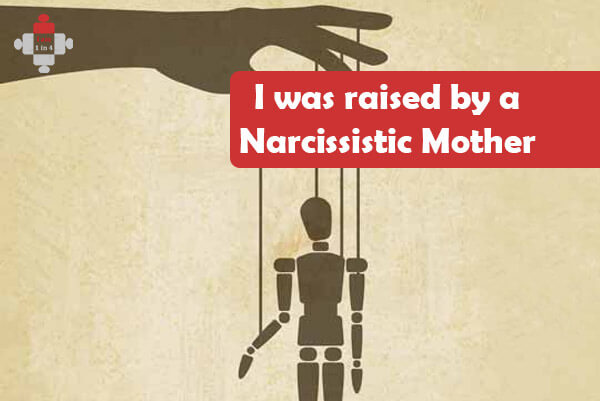 I blamed myself for everything and could feel neither pride nor satisfaction for anything. When something good was happening, I thought it was just an accident. When someone liked me, I doubted it. When something went wrong, I felt it as my fault, because wrong and with it's not right for me.
I blamed myself for everything and could feel neither pride nor satisfaction for anything. When something good was happening, I thought it was just an accident. When someone liked me, I doubted it. When something went wrong, I felt it as my fault, because wrong and with it's not right for me.
Almost all children who were scapegoats learned hide their emotions deeply and have a tendency to constantly self-defense, even when they realize how unfair they are managed. When your sense of belonging was stolen from you own family - it can not help but leave scars that hurt and in adulthood. On the one hand, such grown-up children can achieve a lot by actively working to prove to yourself how unfairly saw their mother, on the other hand, the negative words in their address can become a self-fulfilling prophecy because they are afraid of problems, try to avoid failures of any price, and it is also difficult for them to set their own goals and achieve them. Undoubtedly, one way or another emotional and psychological the consequences of such a childhood are inevitable.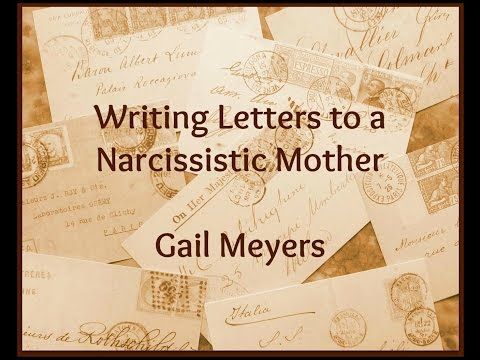
However, despite all this, there is a glimmer of hope. Of all children who grew up in the family of a narcissistic mother, it is the child who was a scapegoat, may eventually see a toxic pattern relationship demonstrated by the mother and other family members. And it is this child who is most likely to seek help in liberation from these patterns and their influence, and not brothers and sisters, who believe in the family legend and most often remain so locked in it. Usually this child becomes the only one in a family able to build healthy and stable relationships, as just looking for help.
The influence of a scapegoat on another child(ren) in family.
Children in the mother's family with high narcissistic traits always remain planets in orbit revolving around the mother sun; even if one child is a scapegoat, the mother still chooses favorites among others, giving out "love" to those children who, according to her opinion is better suited to the role of a mirror, reflecting it itself.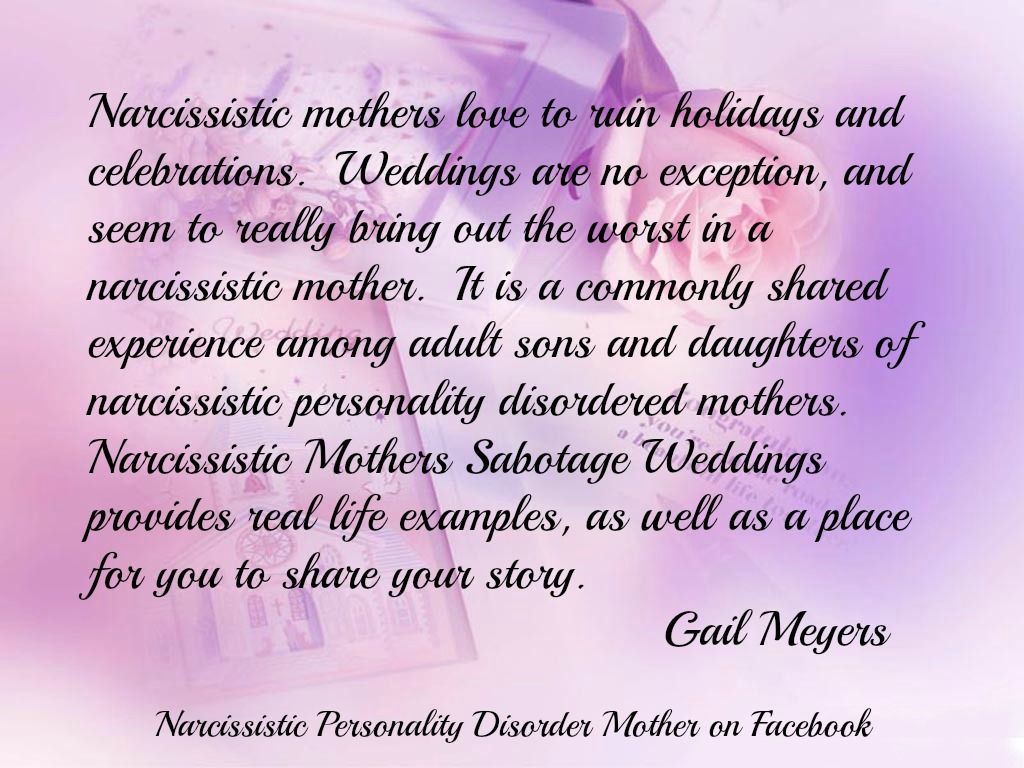 Because the the narcissistic mother perceives children as extensions of herself (except scapegoat, of course), the status of each child may change at any given moment. Usually there is a "gift baby", or the "golden" child who is best at justifying maternal expectations and often, like her, this child demonstrates high narcissistic traits. For him this world is ruled external achievements: how good you look to others (including your mother), and not at all by your character, empathy or inner world.
Because the the narcissistic mother perceives children as extensions of herself (except scapegoat, of course), the status of each child may change at any given moment. Usually there is a "gift baby", or the "golden" child who is best at justifying maternal expectations and often, like her, this child demonstrates high narcissistic traits. For him this world is ruled external achievements: how good you look to others (including your mother), and not at all by your character, empathy or inner world.
The "gift child" knows nothing about self-reflection and real self. He sees love as a deal (“You make good for me and then you deserve my love") and of course believes that in order to be loved, you must fulfill certain conditions. Usually it is with this model of relations that he enters the adult world, unless, of course, he wants to look back at past and deal with family mythology. Such a child usually completely unaware of how he was affected by a narcissistic mother and her deficits in empathy and emotional regulation, because he learned to adapt to what is.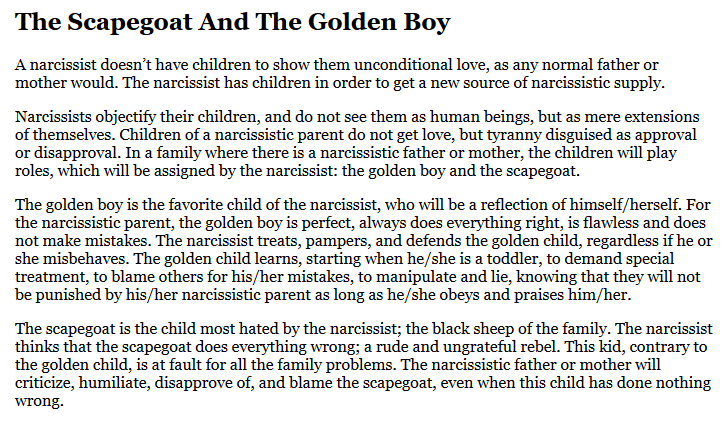 However, this is not a formula. happiness.
However, this is not a formula. happiness.
What's next?
If we continue to speak in the language of crude metaphors, then when scapegoat grows up and leaves the house, it often turns into black sheep. All the incredible efforts that were made by him for the destruction of family mythology will be met with violent denial and attacks from other family members; so way, from the scapegoat, which is the "cause" of all family troubles, he turns into a black sheep, with which the family leads struggle, defending, as it seems to them, the real truth. Usually this development of events separates people on opposite sides of the barricades ("She always been crazy, even when she was a child”; "Oh, with her could never be dealt with. She lied all the time and lived in her own fictional world"; "This is the most ungrateful person in the world"; “To begin with, she never wanted to be part of our families"). In addition, it often happens that the family is not ready just remain silent and ignore the threat; usually a dirty company discrediting the already adult "black sheep".